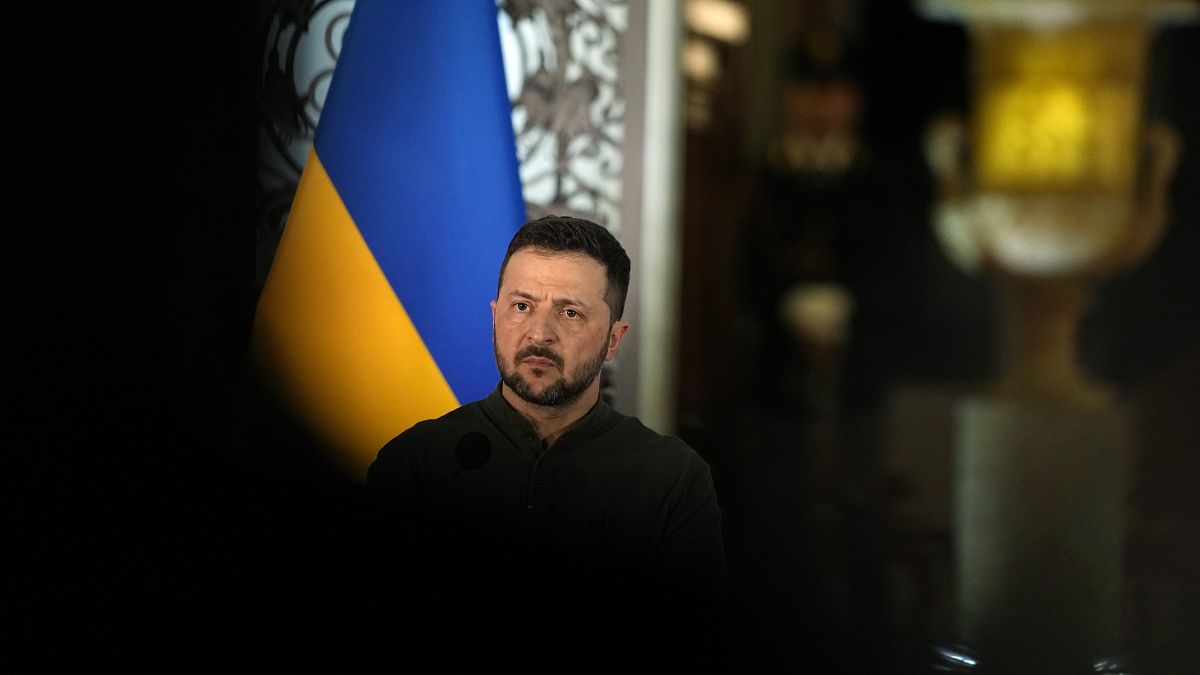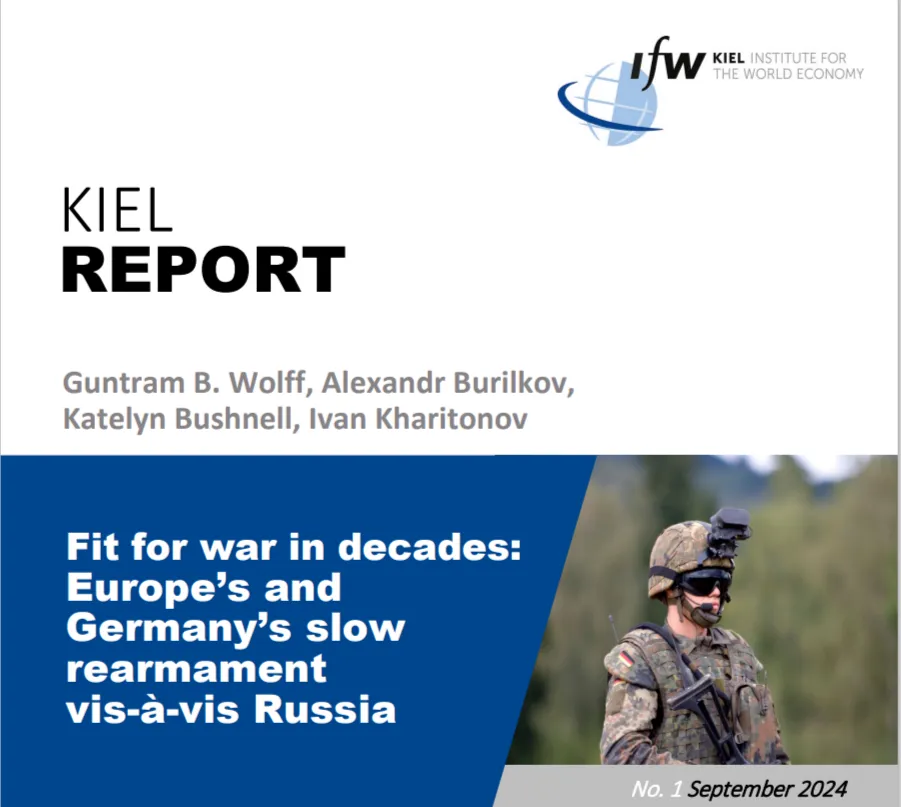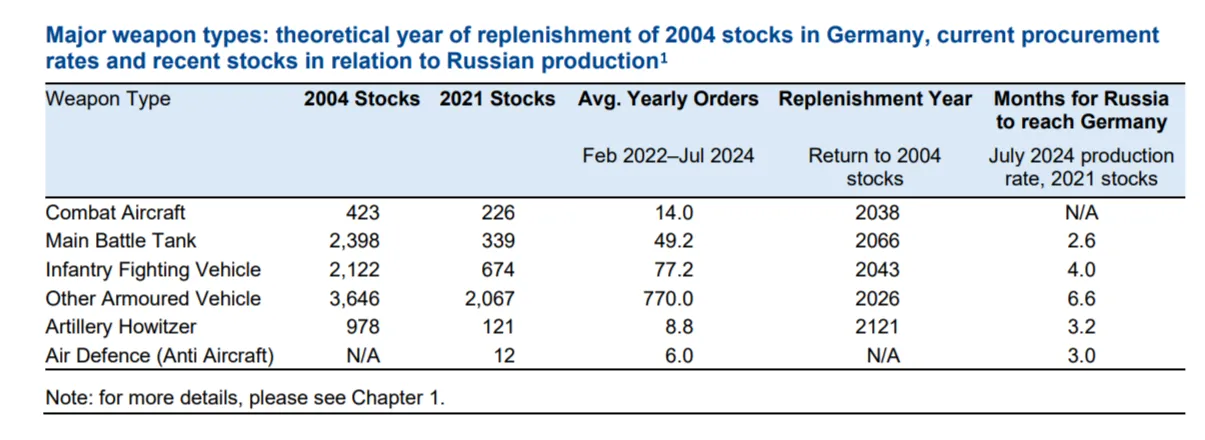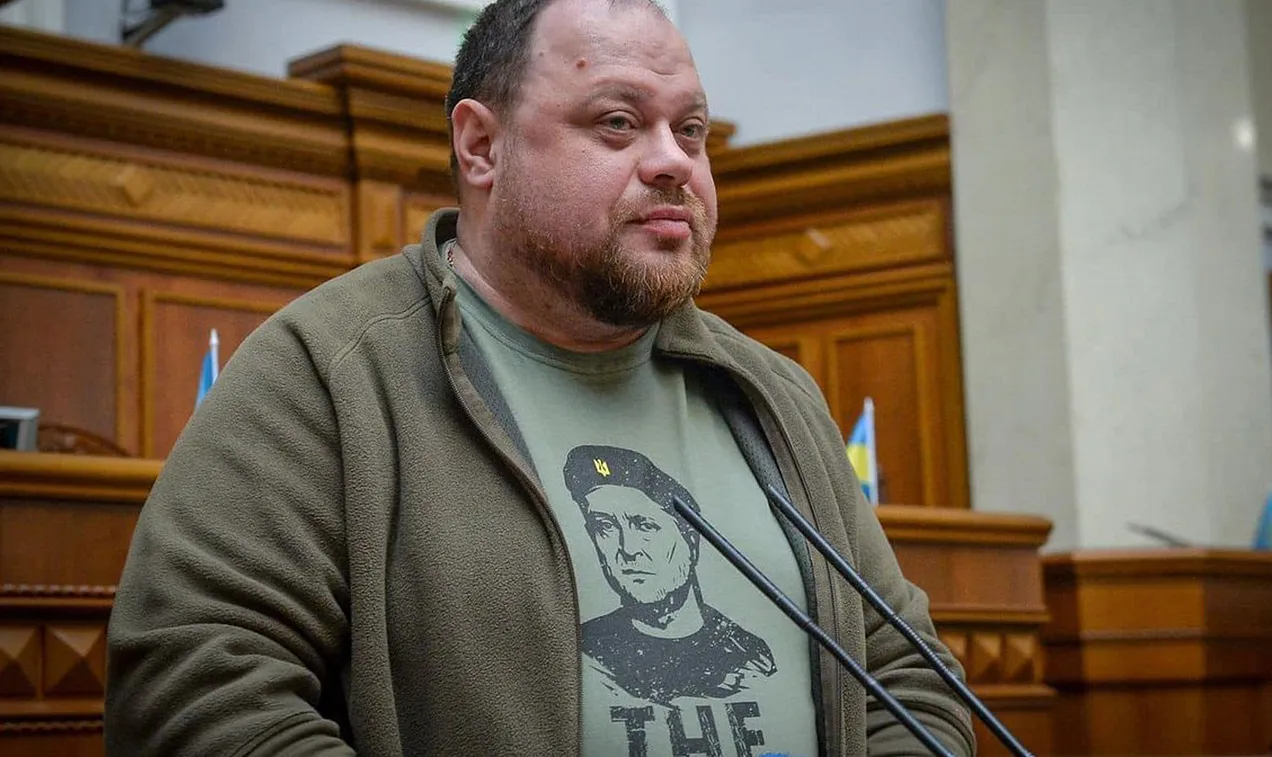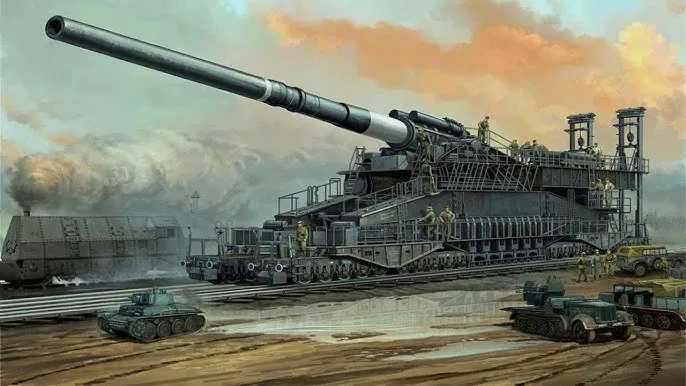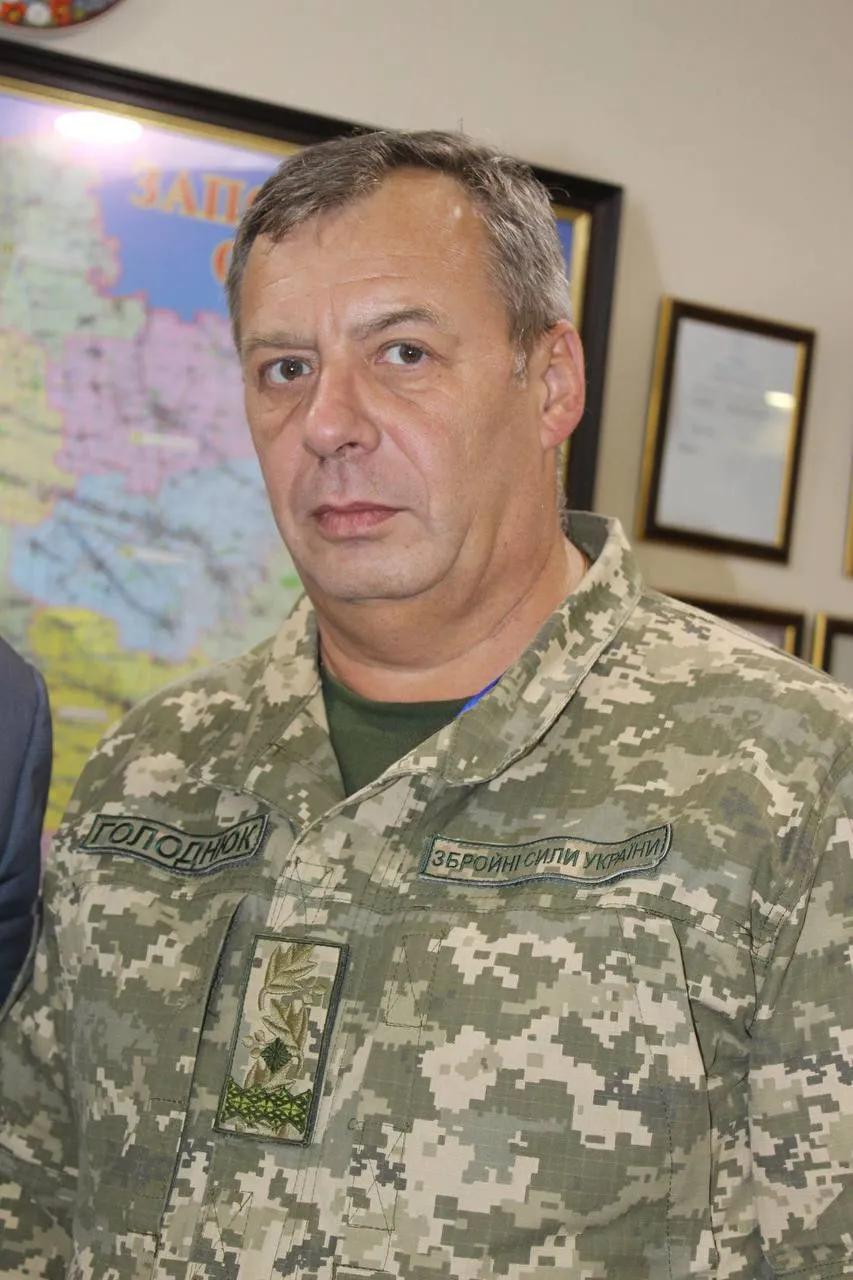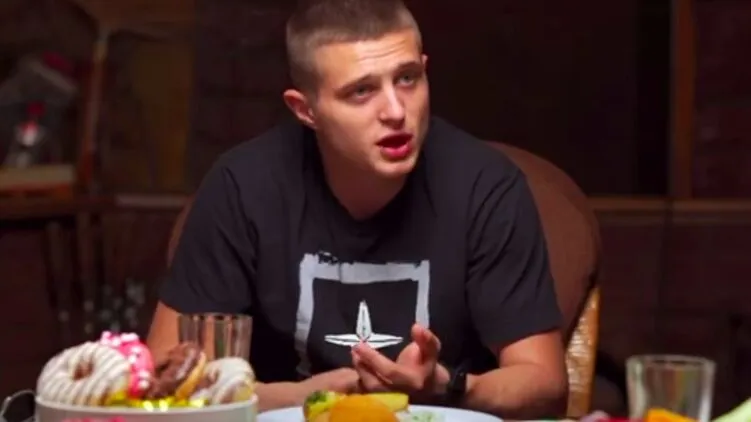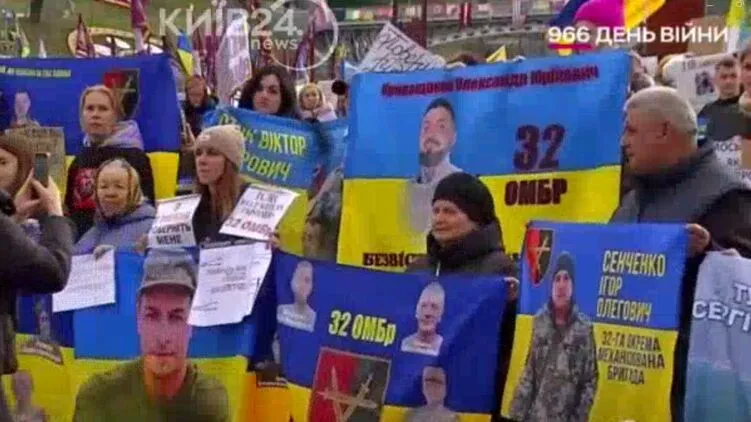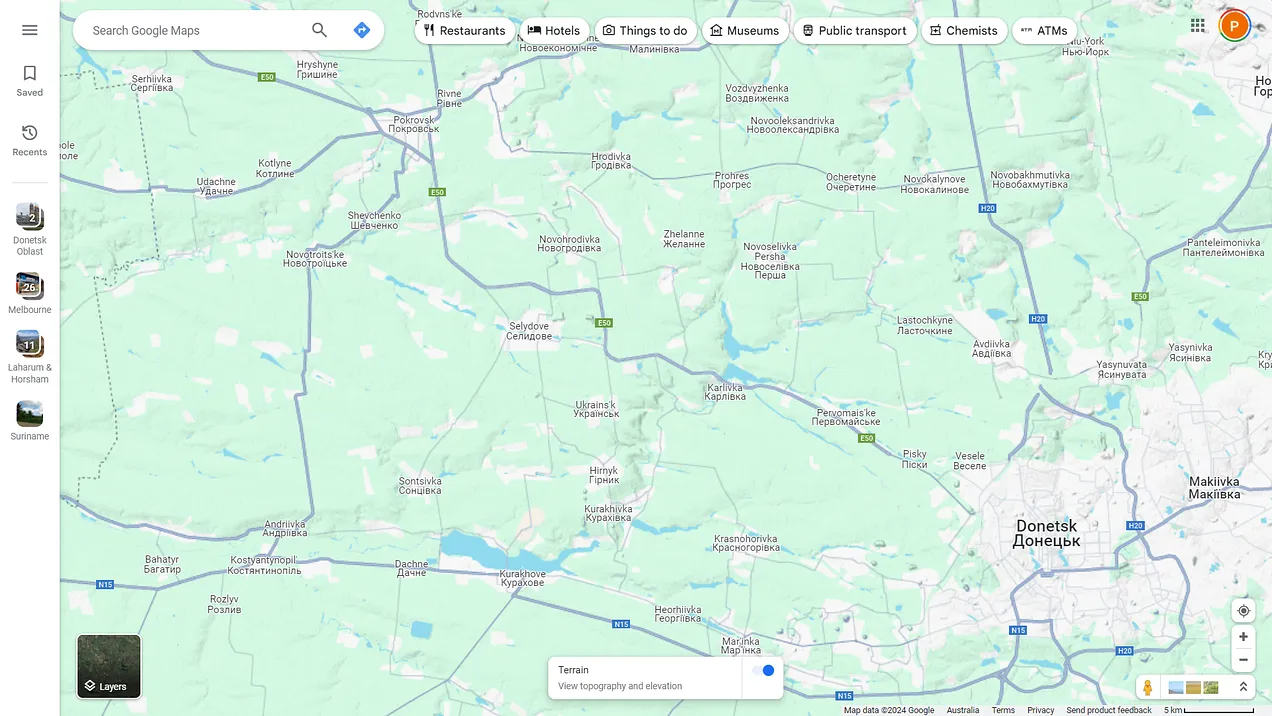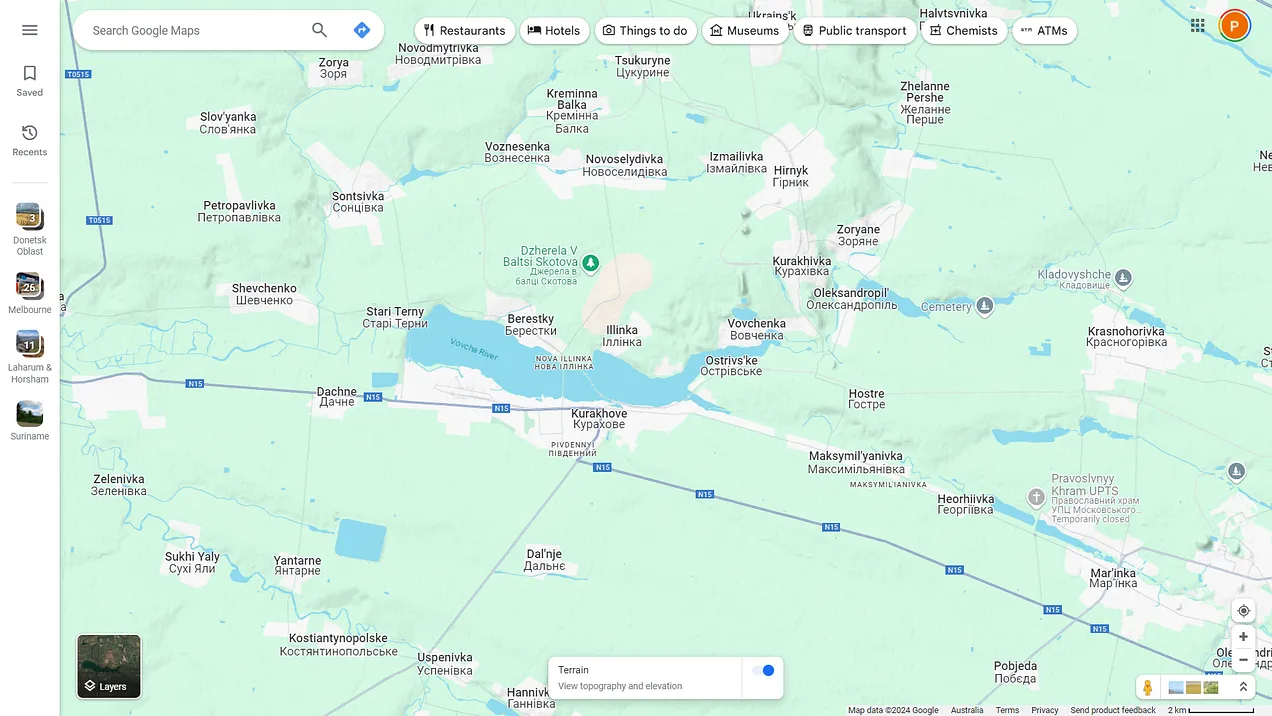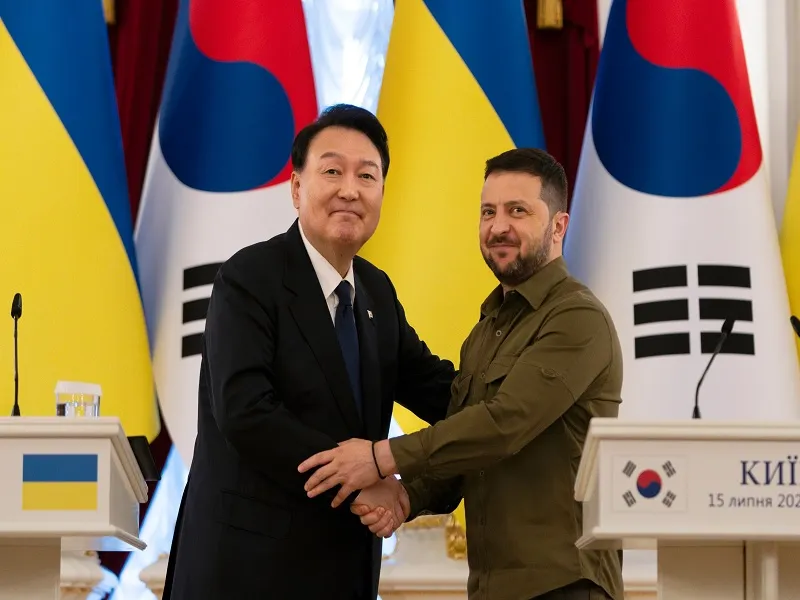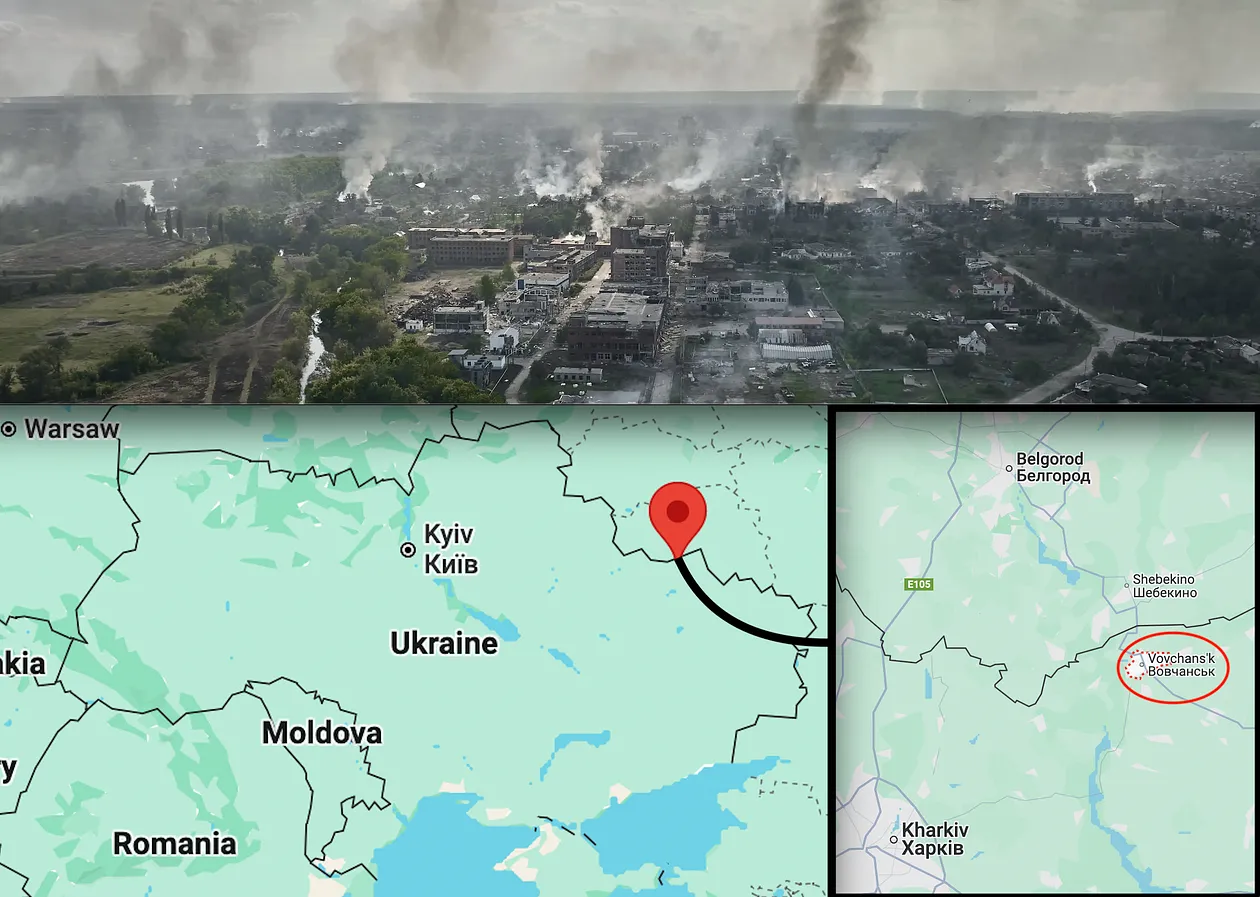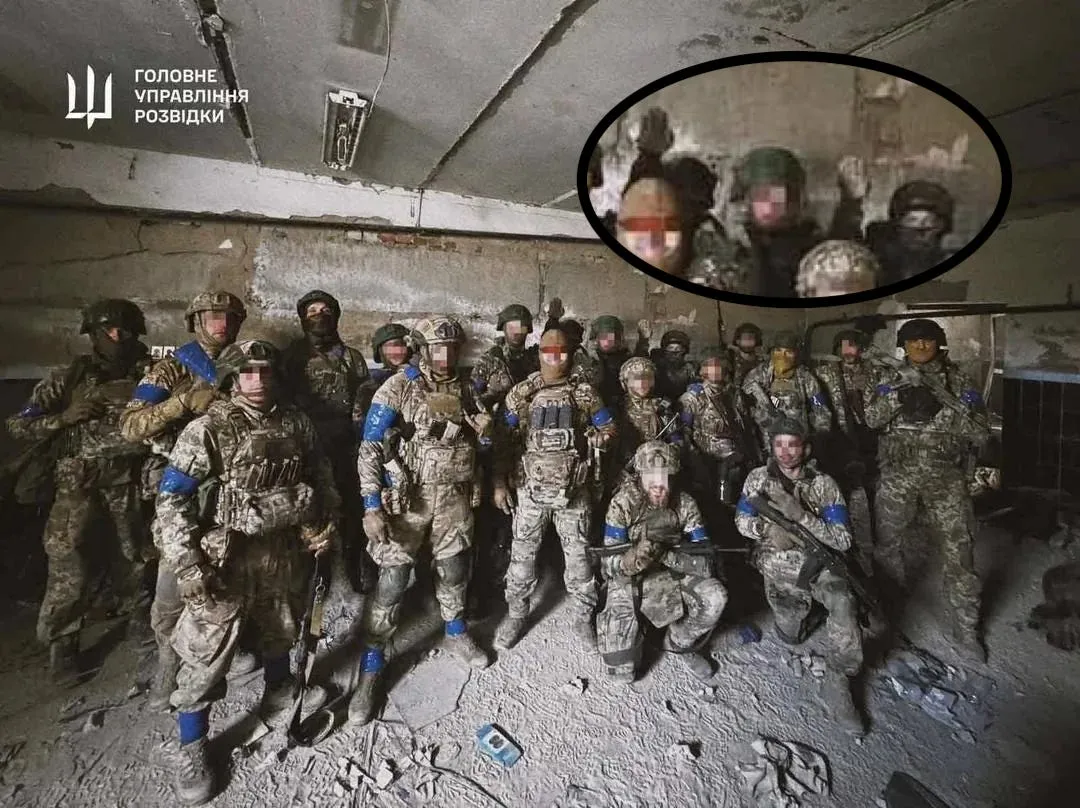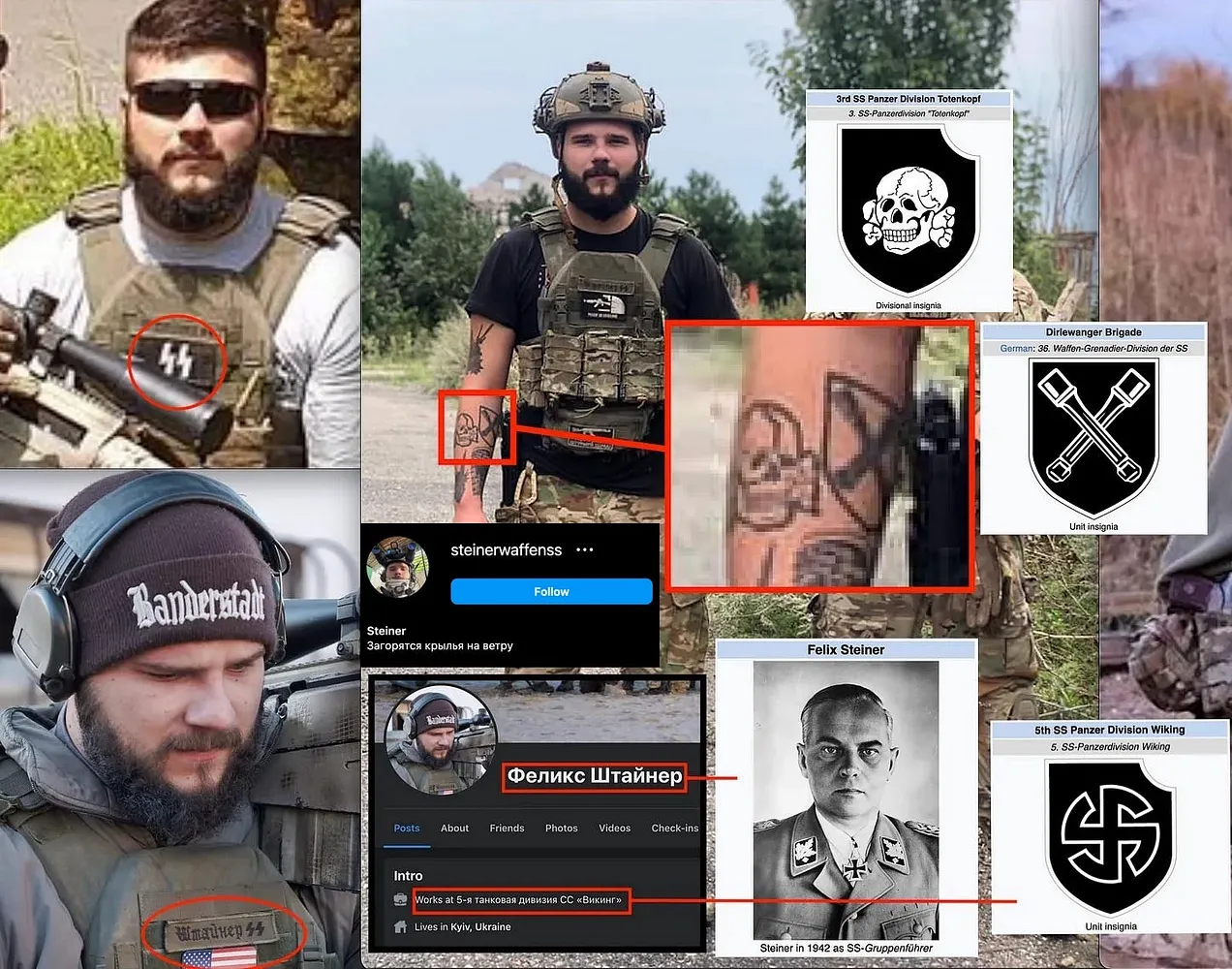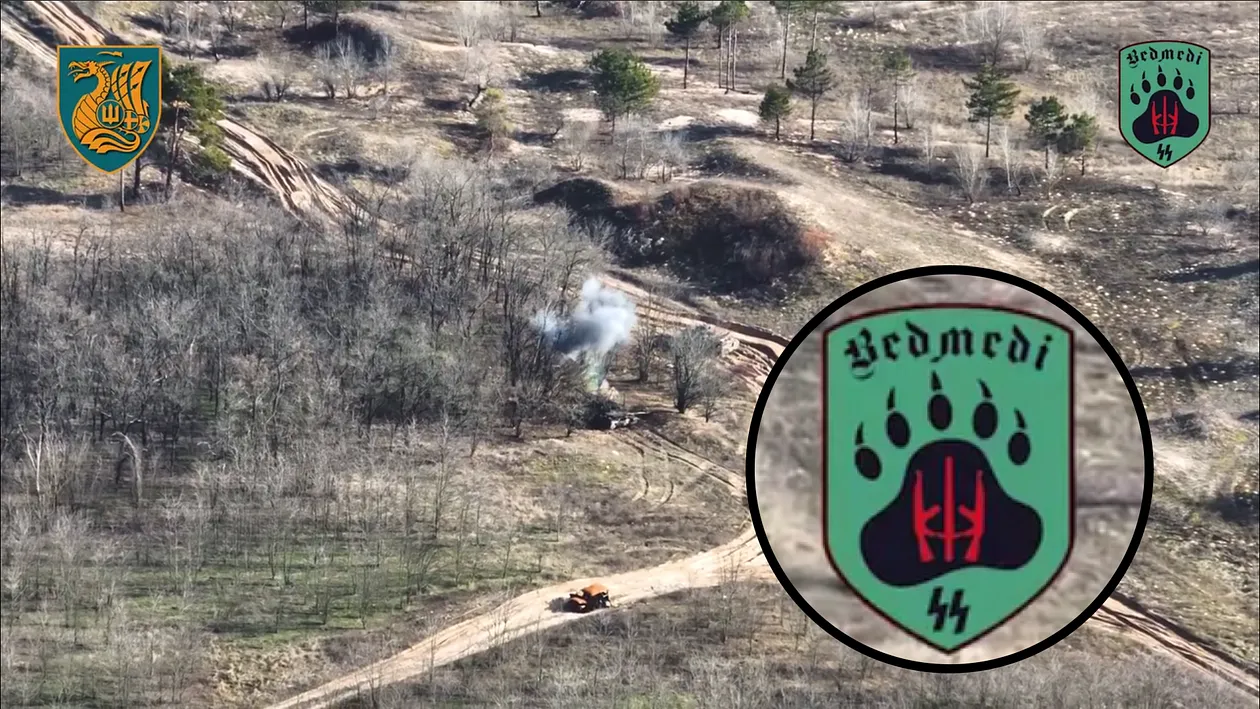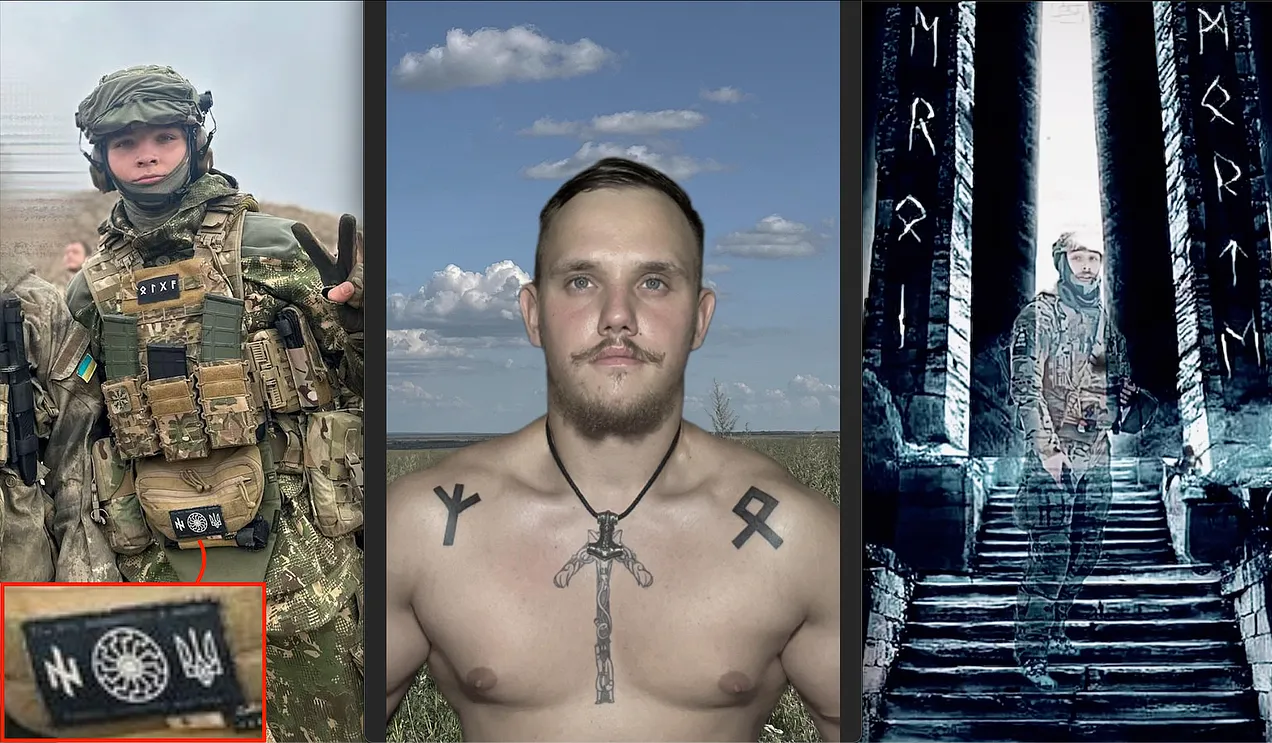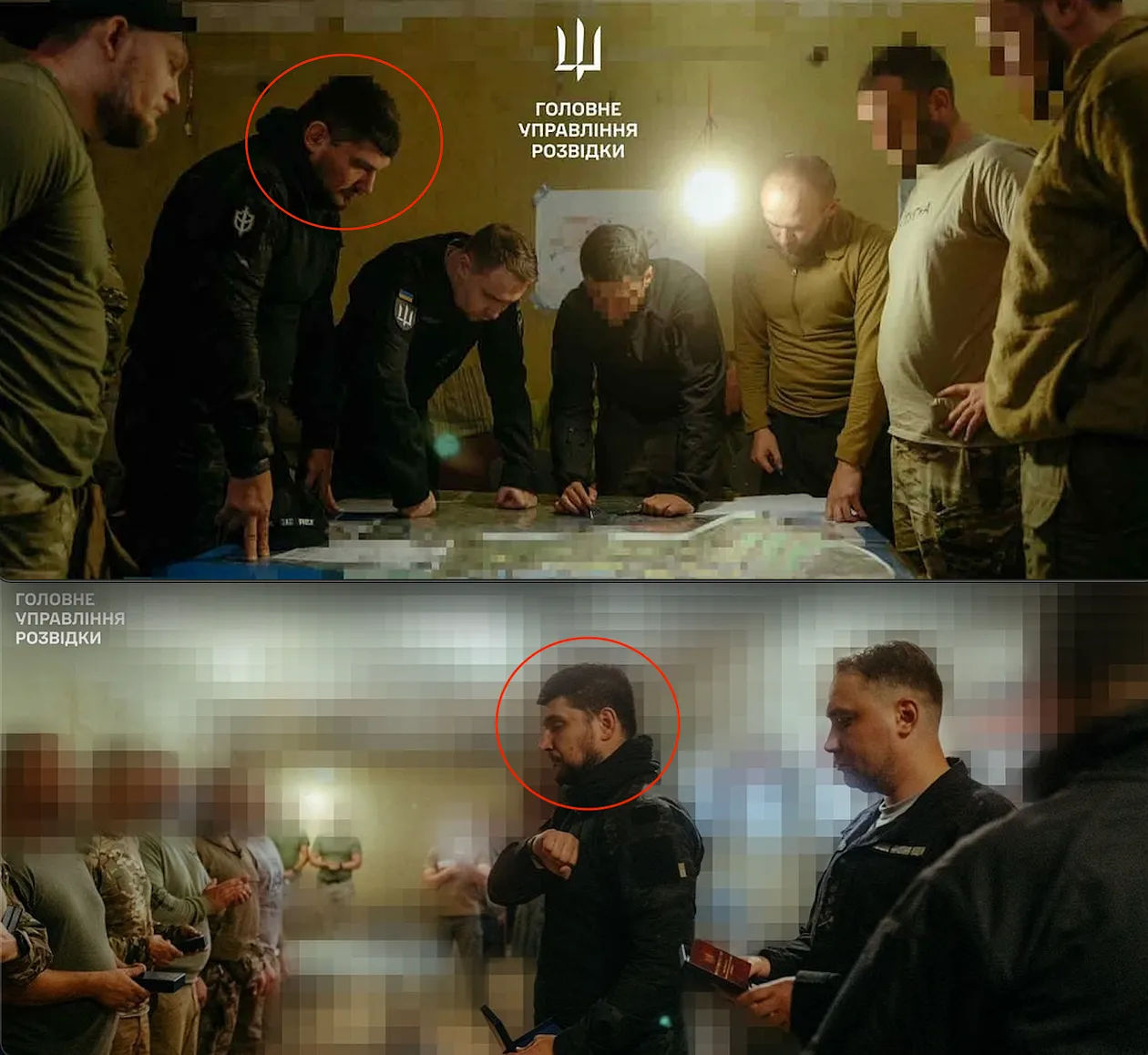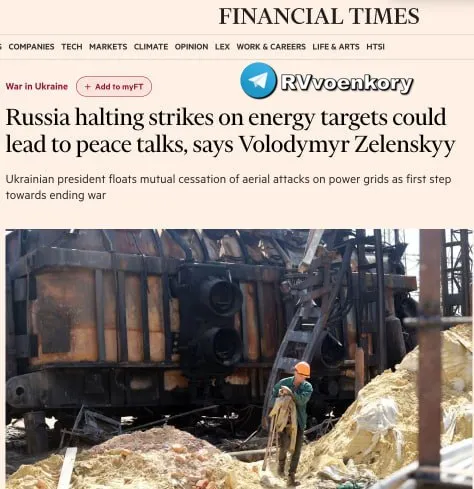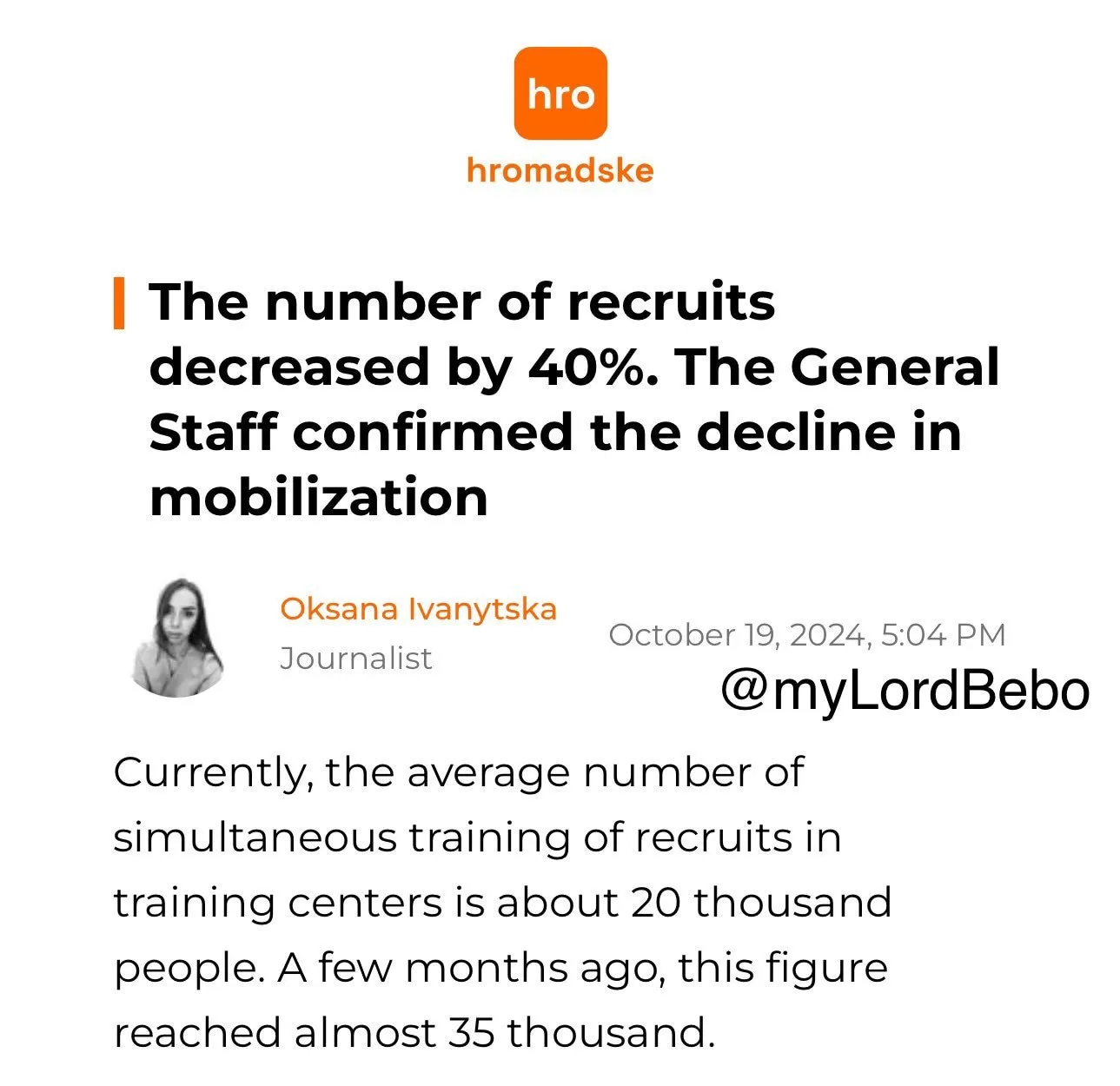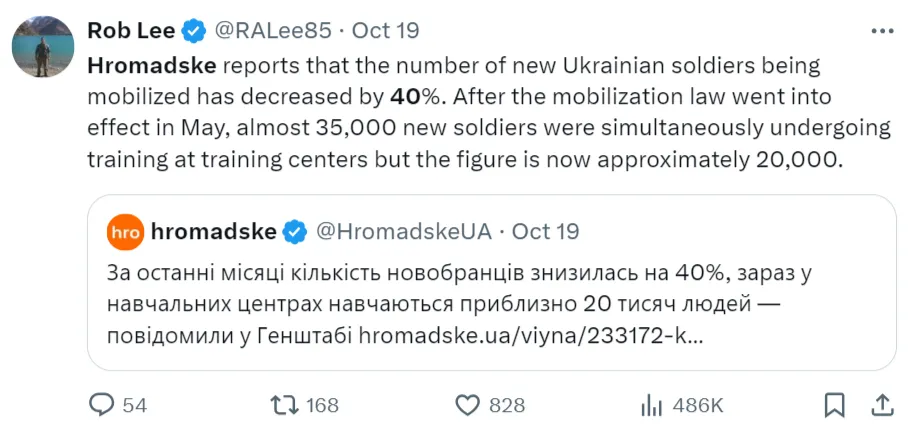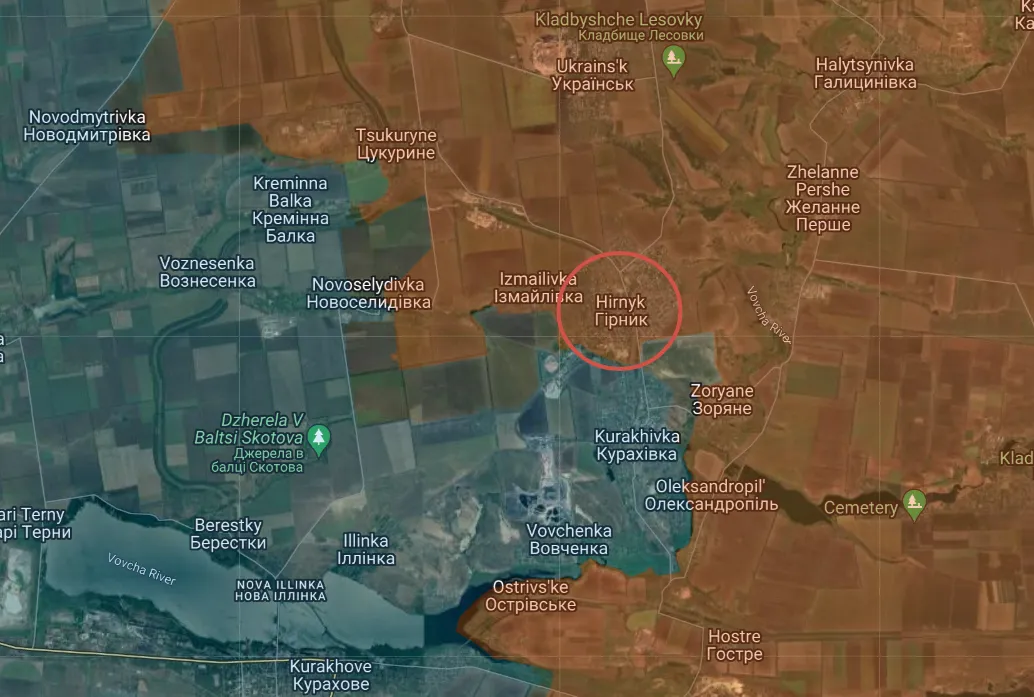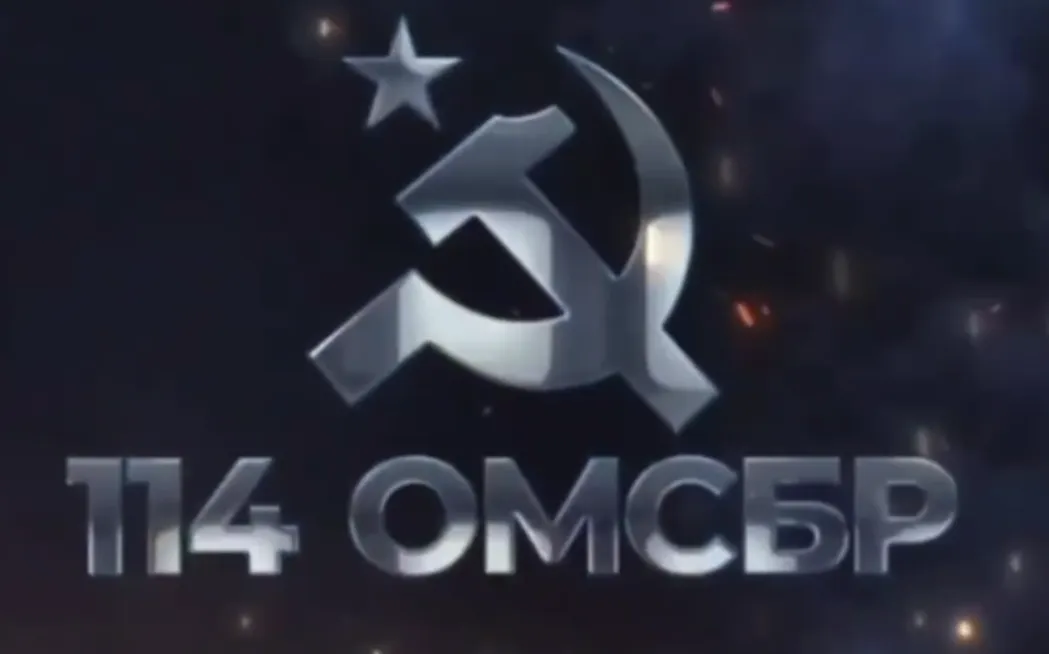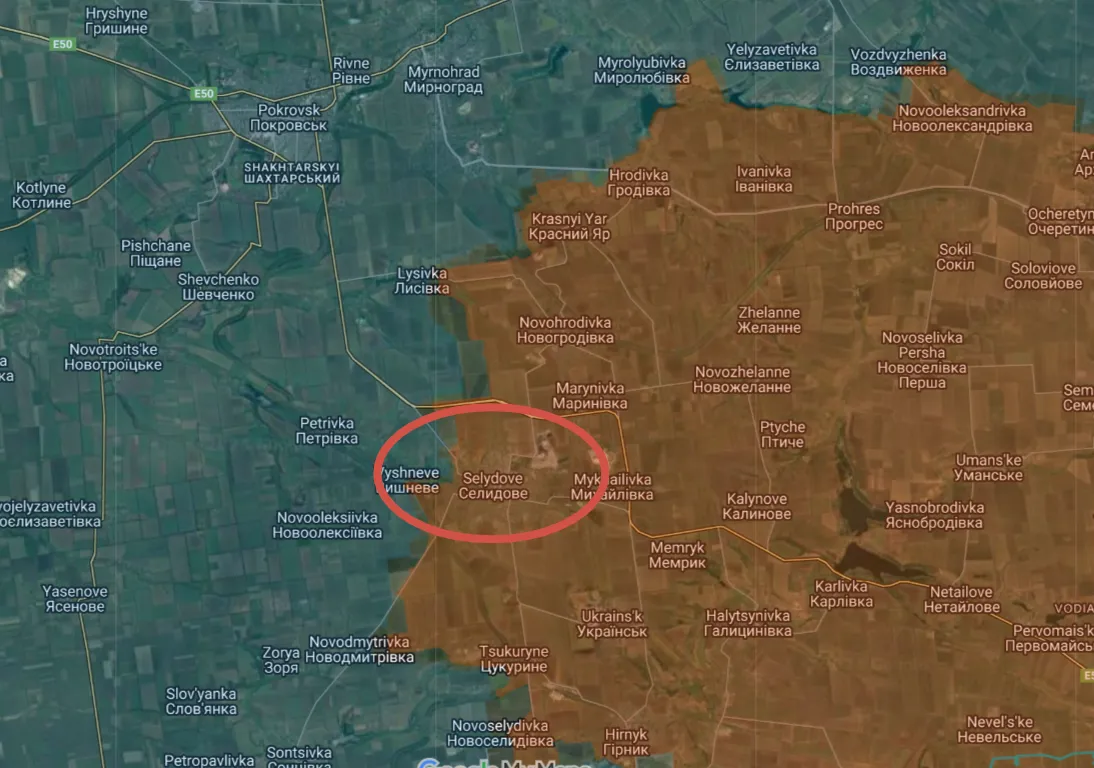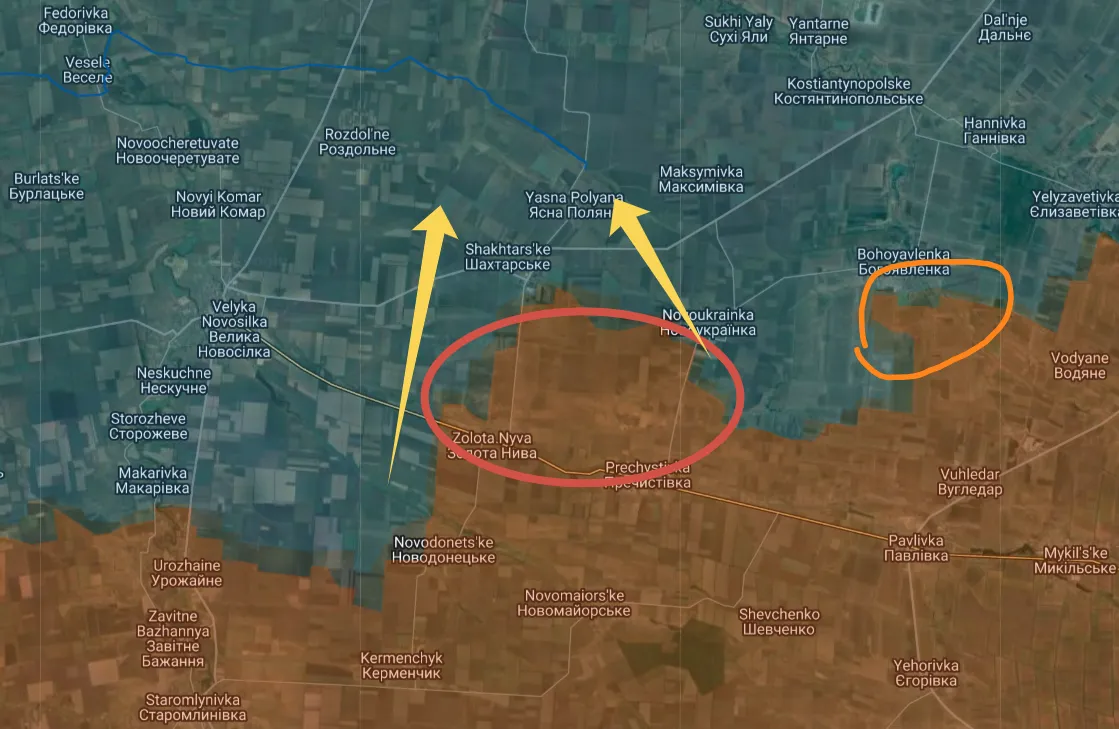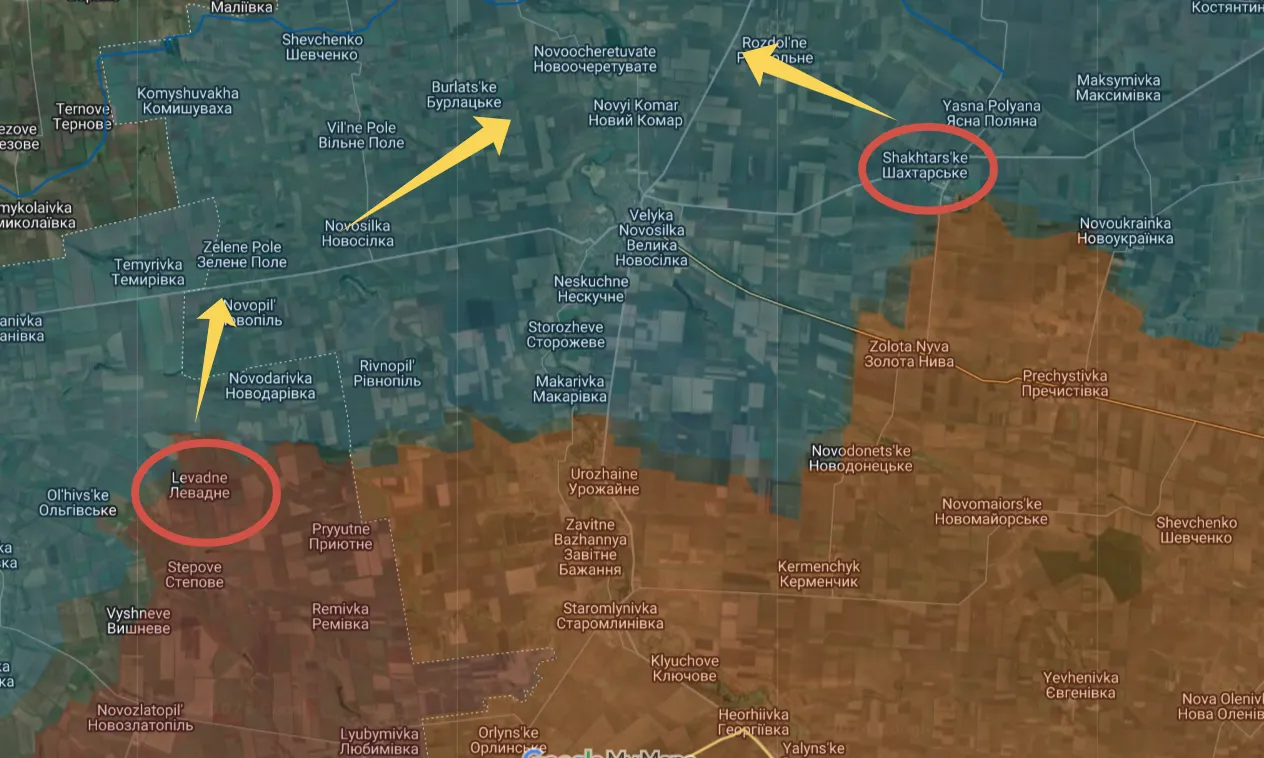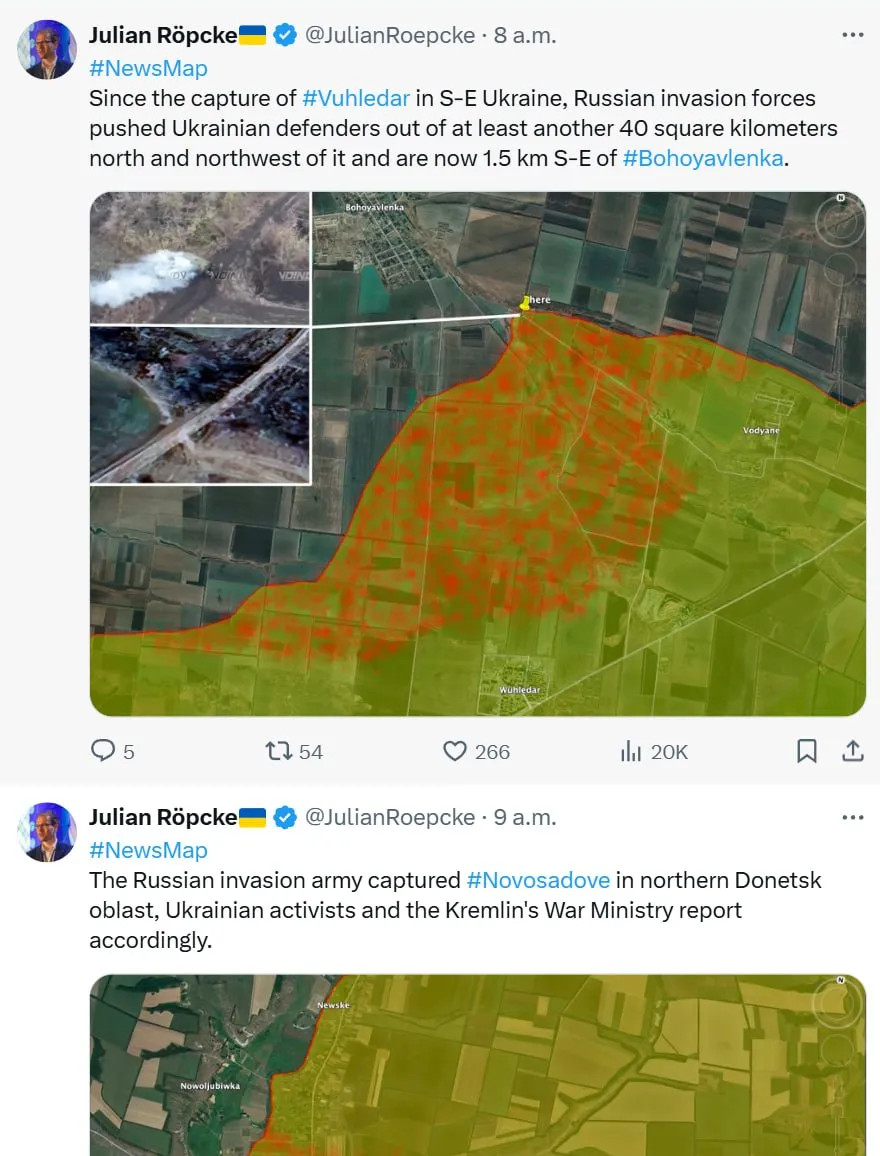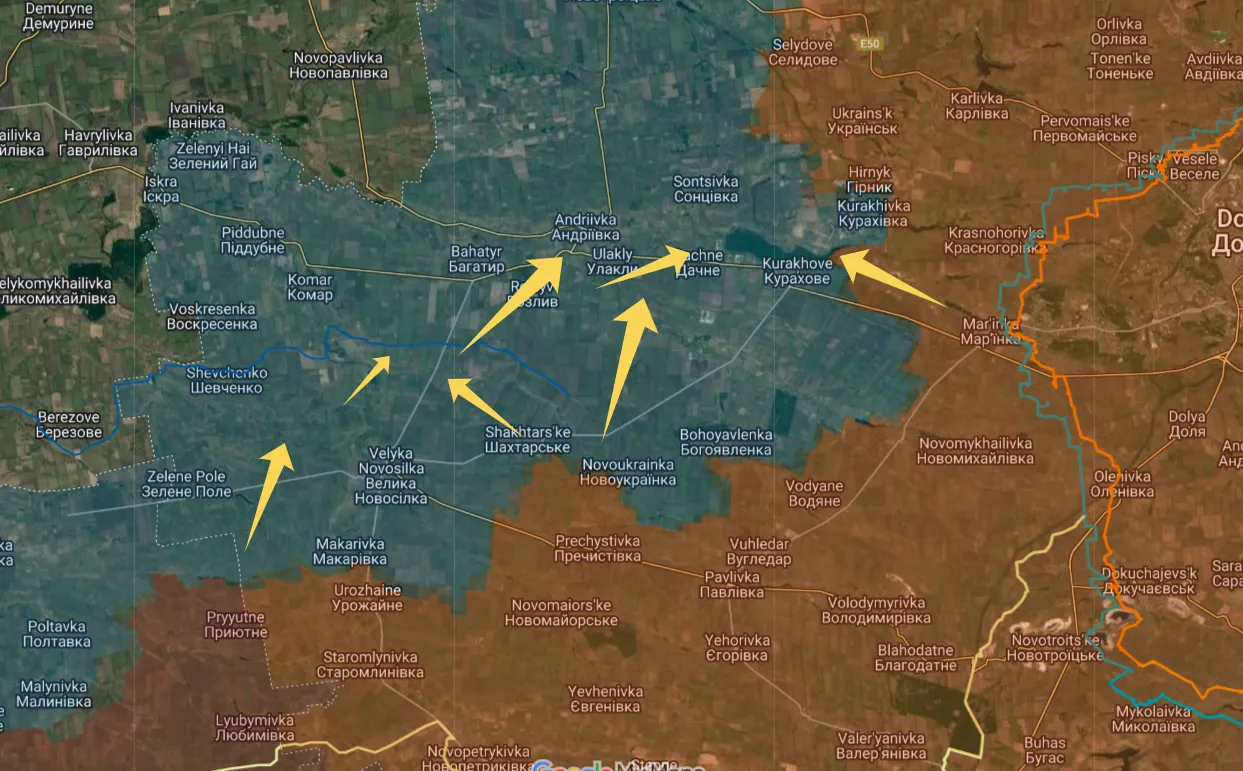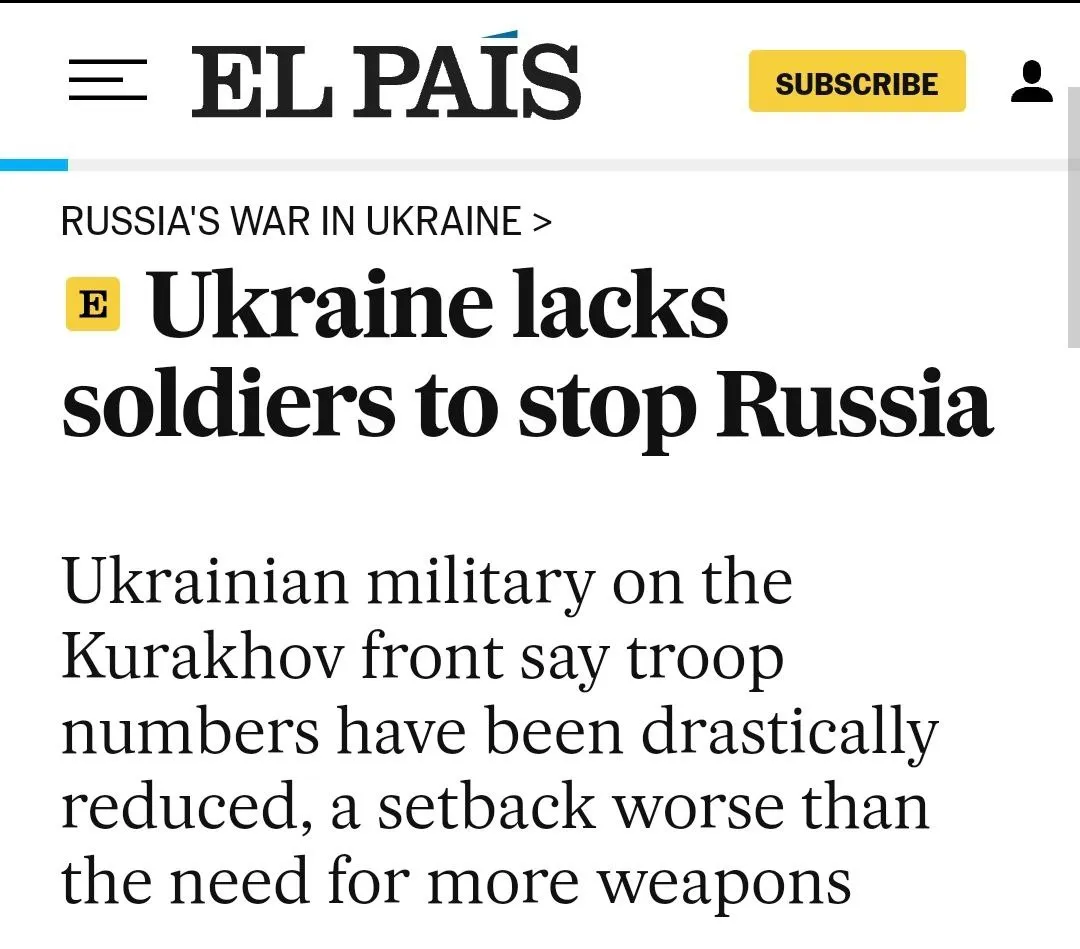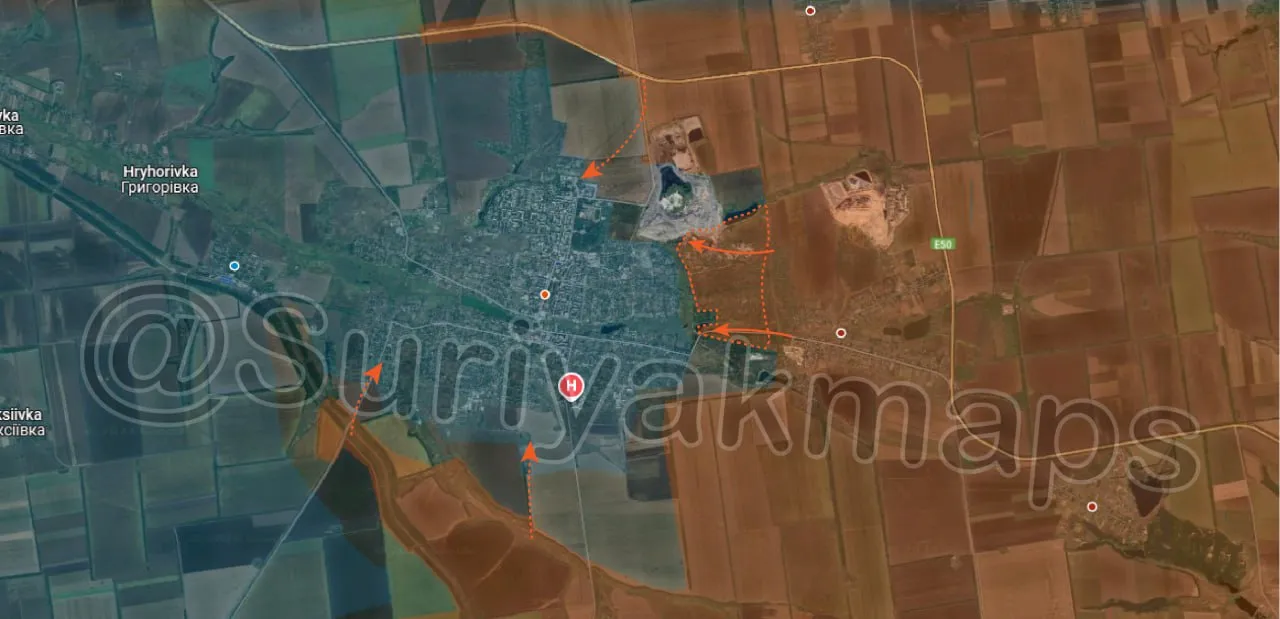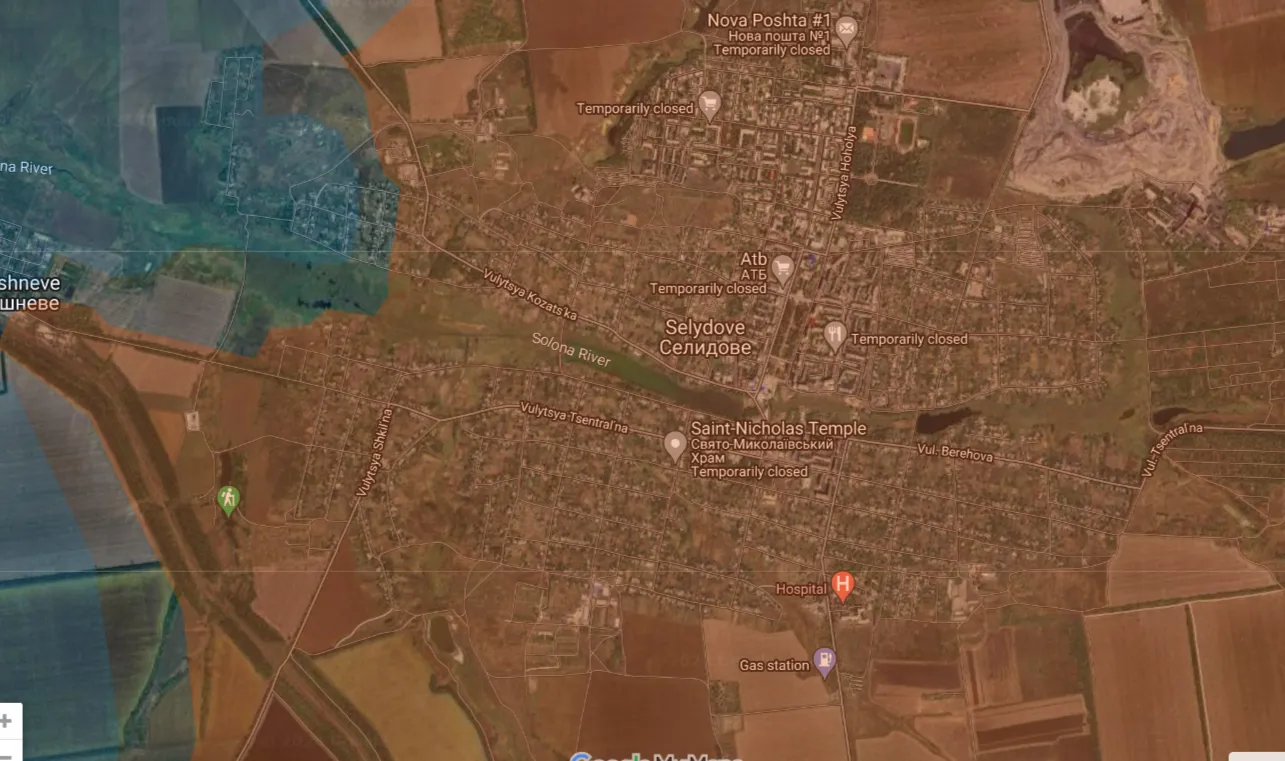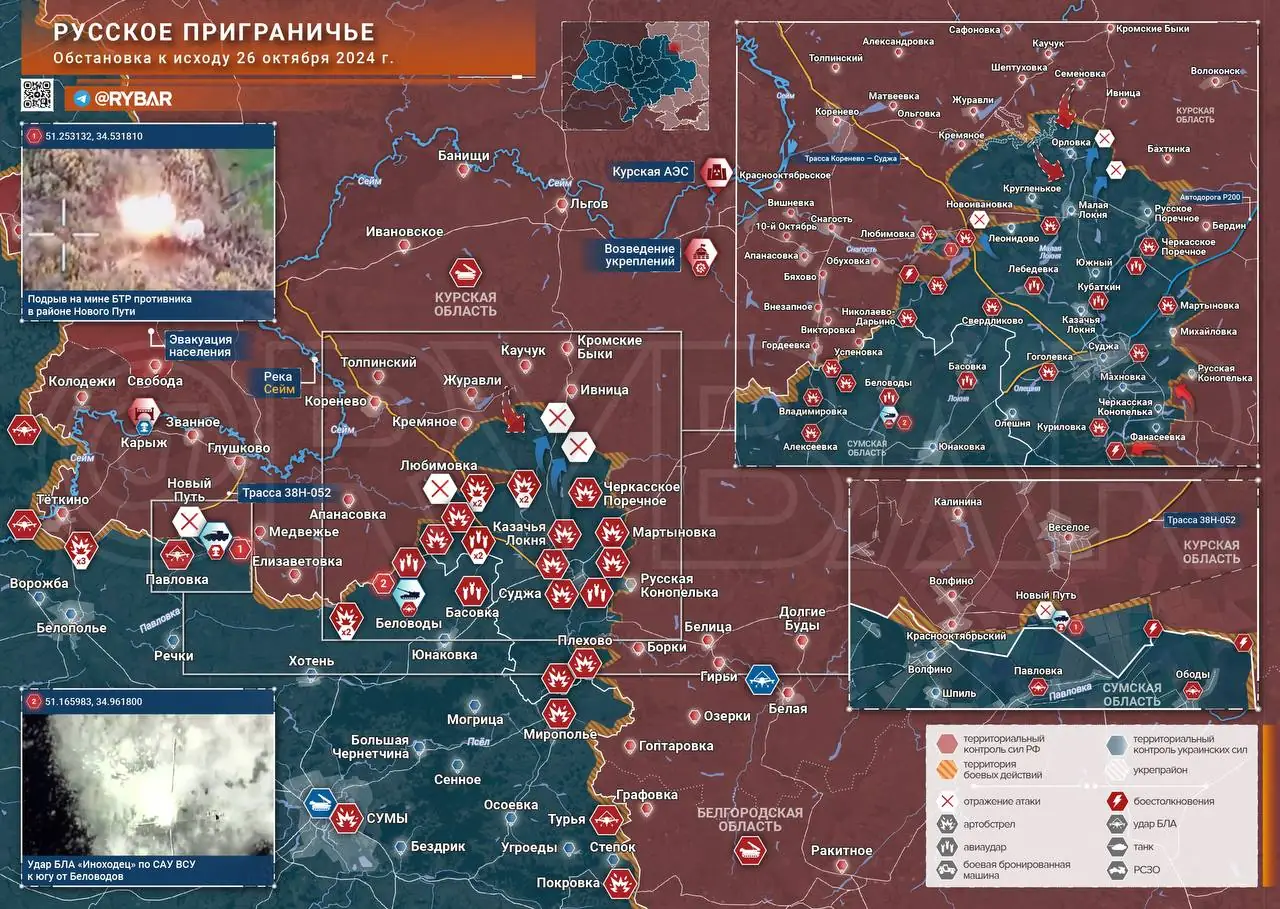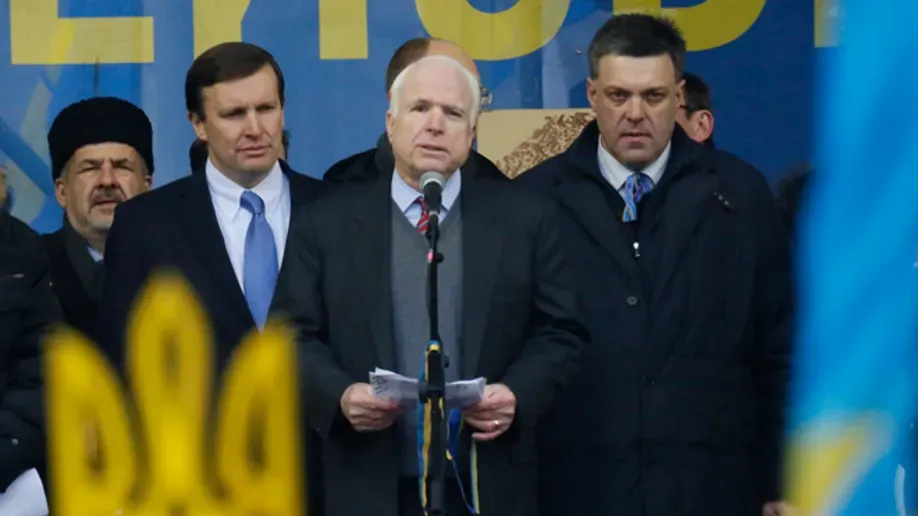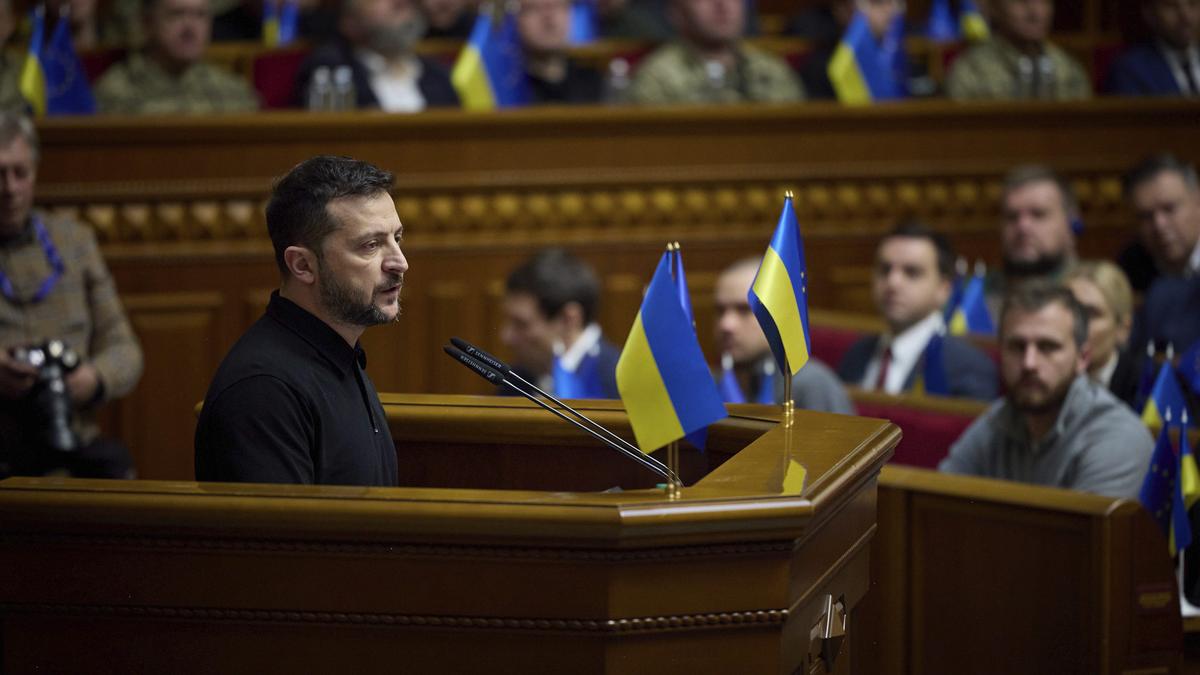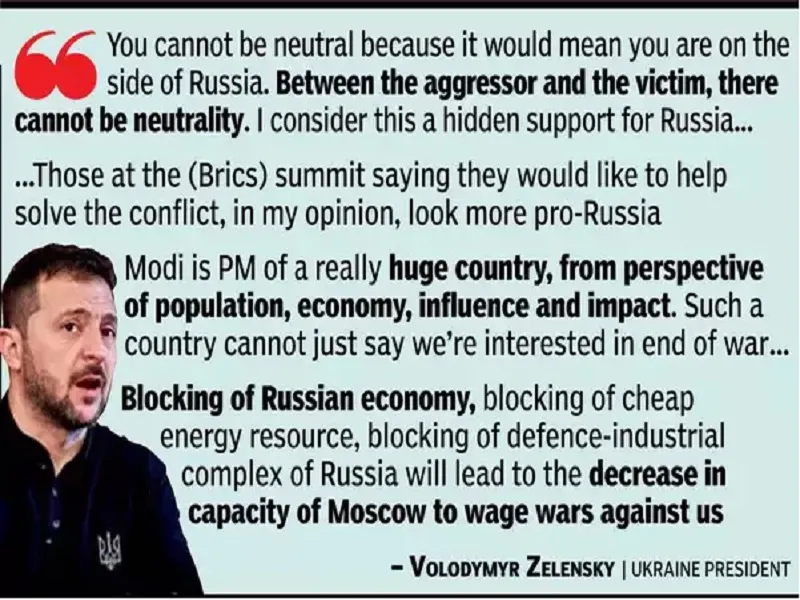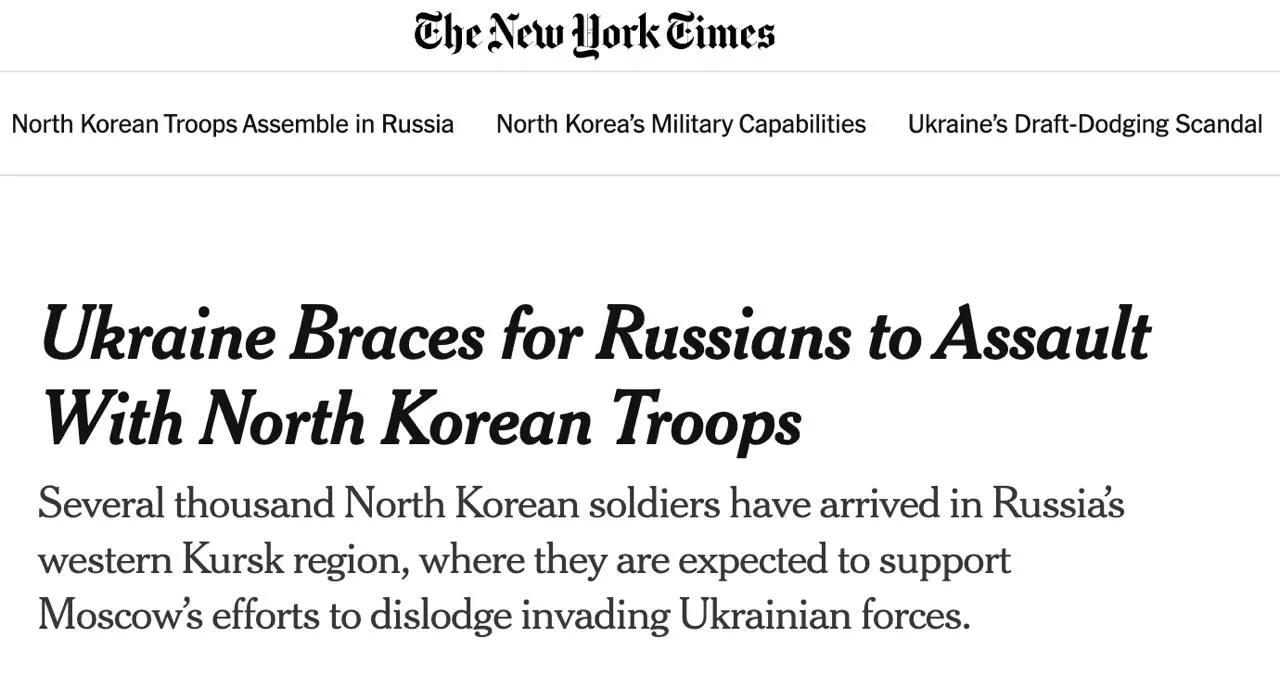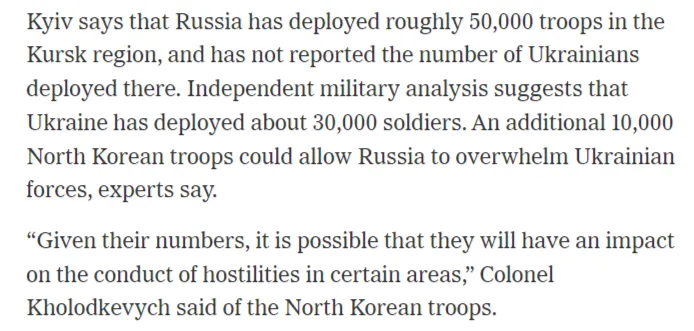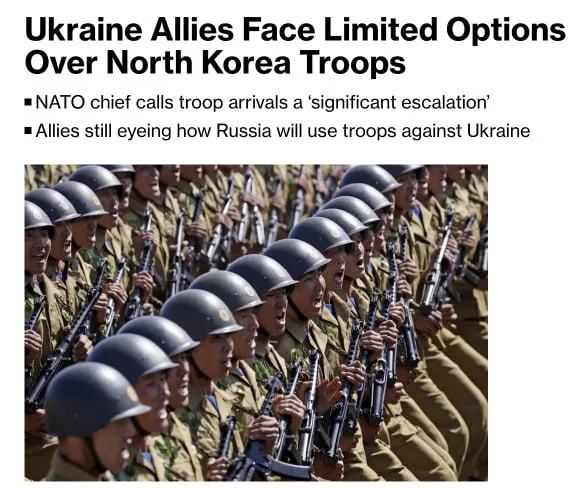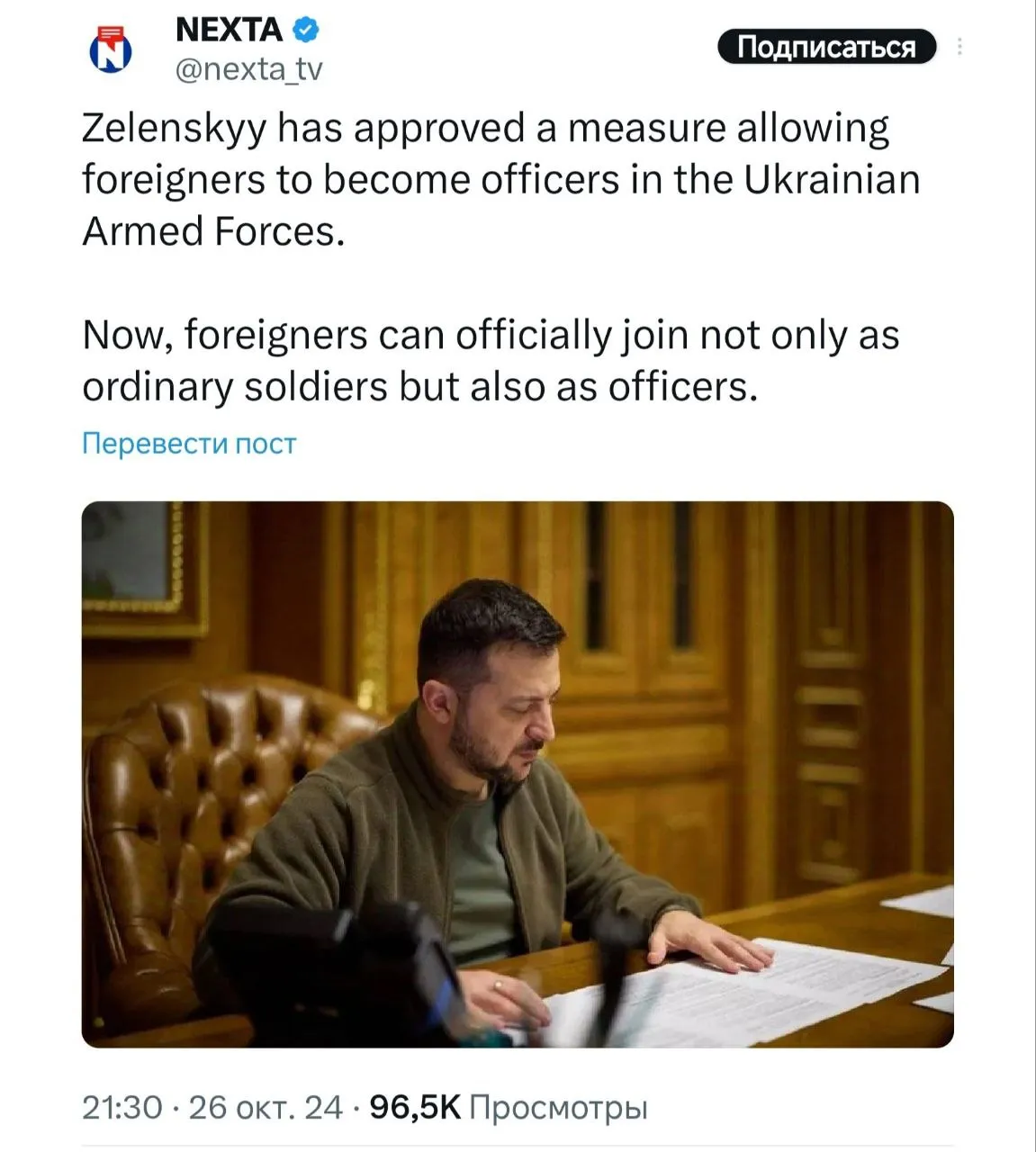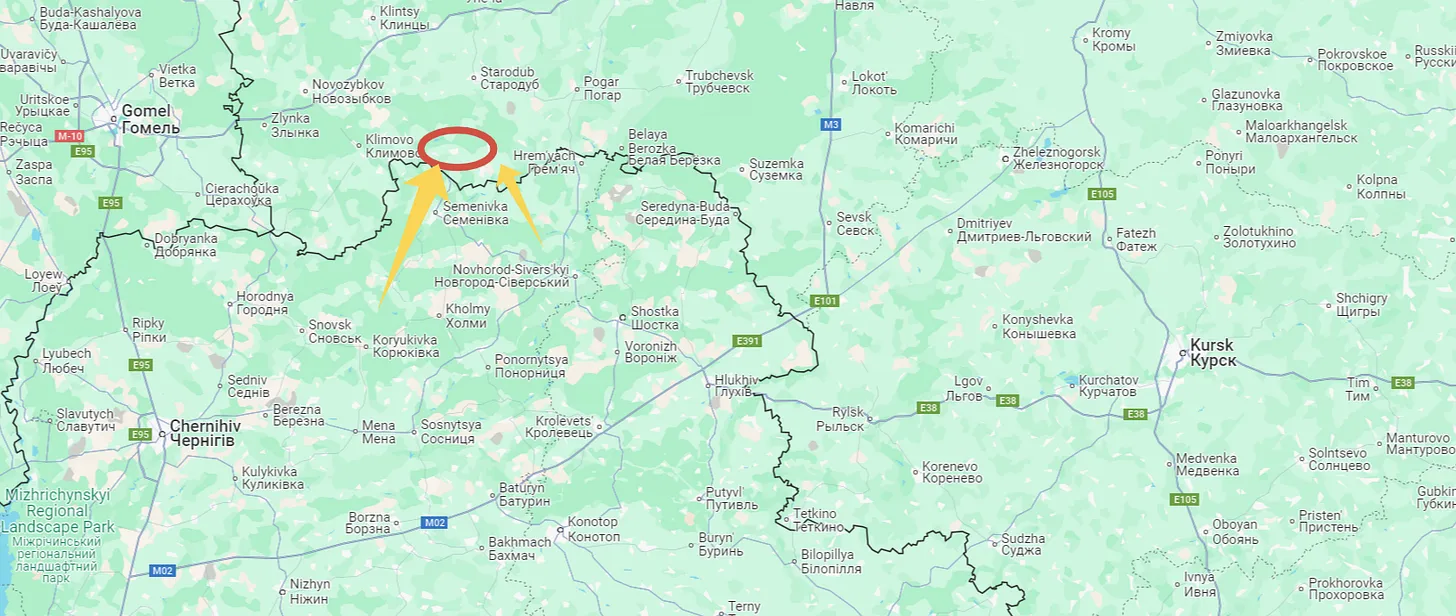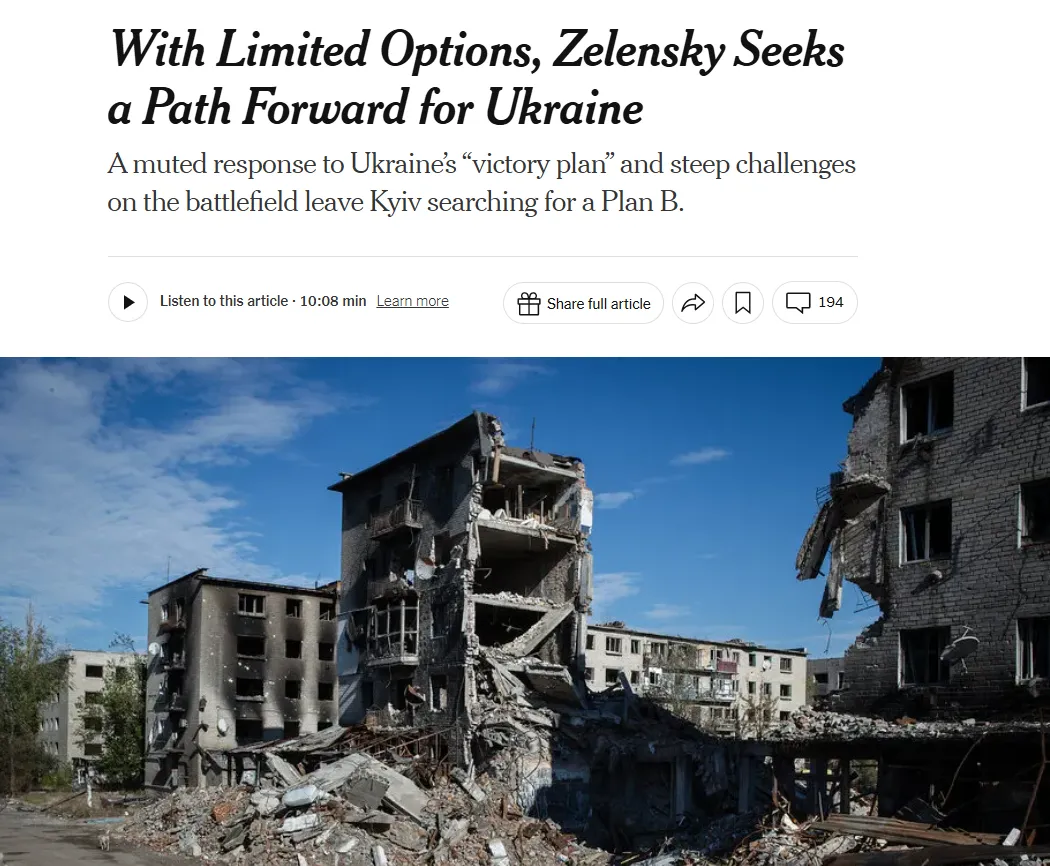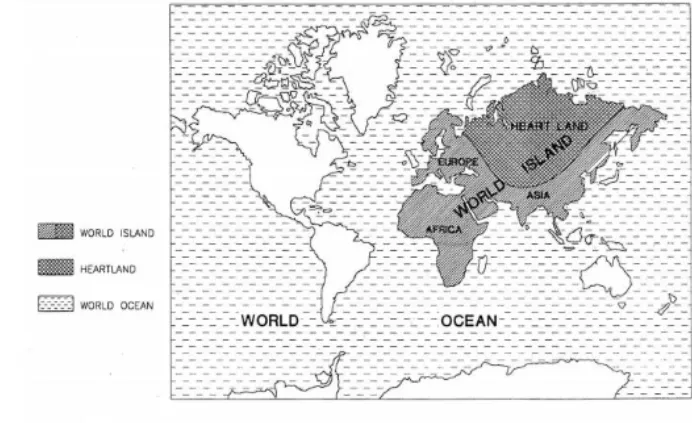Posted by @nsanzo ⋅ 10/21/2024

The war in Ukraine has called into question dogmas that had previously been unquestioned. In 2022, kyiv and its Western allies, especially the press, insisted endlessly on trying to dismantle the Russian military strength that had been taken for granted for decades. Ukrainian mockery began with the characterization of the Russian army as the “second army in the world,” a Cold War description that justified Western militarization but coexisted with contempt for Soviet weapons, always considered clearly inferior to Western weapons. Ukrainian propaganda transformed this second army in the world into the second army in Ukraine, assuming the inferiority of Russian troops compared to Ukrainian troops and of Russian weapons compared to Western weapons. In war, certainties are only momentary and any contempt for the enemy can backfire.
Two years later, after $200 billion in Western aid, with Ukrainian troops equipped and trained by NATO countries and a reform that was supposed to leave Soviet methods behind, Ukraine has not only been unable to defeat the much inferior Russia, but members of the President's Office are recovering the label of the world's second army in a very different way, in this case as a serious threat and an argument to demand more weapons and warn of a common danger of invasion of European countries in the event of victory in Ukraine. The poor performance of Russian troops in the first months and the clear failure of the kyiv operation in the spring of 2022 were used to assume that Russian military potential had vanished, a perception heightened by the two defeats that autumn in Kharkiv and Kherson.
The overconfidence in Ukrainian superiority, which was partly due to the eight years of combat experience that the Russian army lacked, spread to Ukraine's partners, who assumed that Russia would not be able to recover or learn. The counteroffensive of 2023, in which kyiv failed to break through the defence that Ukraine and the West had so mocked, brought down the dogma of Russian inferiority and also that of the superiority of Western equipment, which has suffered the same situations as Russian weapons.
But the war is not only questioning military dogmas, but also political ones. The assurance with which the European Union and the United States announced in February 2022 that their sanctions would put the Russian economy in jeopardy assumed that countries outside their orbit would join of their own free will or would have to do so. Two and a half years later, sanctions policy is one of the points of Zelensky's Victory Plan . “We continue to work on sanctions: today we are applying two new sanctions packages. The first is aimed at those who betrayed Ukraine, and the second is focused on Russian military production, that is, on those legal entities and individuals who work to foment terrorism. We will continue to apply our sanctions and pressure on the enemy in synchronization with all people in the world who, like Ukrainians, want real peace,” Zelensky wrote in early October, accusing any country that has not joined the sanctions against Russia of hating peace. Ukraine also denounces the exponential increase in trade between European countries and Kyrgyzstan, Kazakhstan and Tajikistan, all of which have not joined the sanctions against Russia and are taking advantage of the opportunity to act as a liaison between those imposing the sanctions and the sanctioned country.
“It is clear that states do not have abstract friends, only national interests. This simple maxim is faithfully illustrated by EU trade with the countries of the Caucasus and Central Asia. Since 2022, European exports to these countries have increased by hundreds of percentage points. This strange prosperity is fueled primarily by… the Ukrainian tragedy: imports from neighbouring countries to the Russian Federation have skyrocketed by hundreds of percent. In such a primitive and open way, the aggressor circumvents trade sanctions by importing not only household goods, but also tools and components for weapons production,” added Mikhail Podolyak that week, providing the graph in which this development could be observed.

Increased trade between EU countries and Kyrgyzstan, with a red line marking the time of the Russian invasion.
The failure of sanctions to destroy the Russian economy and prevent military production has shown that the West has never achieved the international isolation of the Russian Federation that it aspired to and hoped to achieve easily. A clear example of the failure of the isolation policy is the West's treatment of China, Russia's main ally and neighbour, which is being lured to the West's positions and, at the same time, threatened with sanctions and accused of direct participation in the war for military collaboration with the Russian Federation. Western pressure has not succeeded in intimidating China, which not only did not join the sanctions, but refused to participate in the peace summit in Switzerland organised by Andriy Ermak to show that the international community was on Ukraine's side and did not bother to take offence at the repeated accusations of Chinese military equipment being sent to Russia, always without any evidence, made by the West. The best reflection of China's position in the conflict is not that China's row in the database used by the Kiel Institute to track aid to Ukraine is empty - according to that source, China has not provided Ukraine with any military, financial or humanitarian assistance in the past two and a half years - but the negotiation proposal that Beijing is sponsoring together with Brazil.
Like the Chinese-Brazilian plan, all the peace and/or negotiation proposals presented so far share a common origin: the Global South, that rest of the world that the West counted on to force an international isolation of Russia that is not coming. Politically, the war in Ukraine and the response of countries outside the NATO orbit - and even some practically unconditional allies of the West, among which the Gulf countries stand out - has also demolished part of the halo of invincibility of Western hegemony. The United States has achieved one of its main objectives, to erect an imaginary wall of rupture of continental economic and political relations in Europe, a situation that is perfectly symbolized in the images of Nord Stream. The subordination of Europe to the United States is a fact that materializes in the renunciation of raw materials of Russian origin or in the medal that Frank-Walter Steinmeier gave to Joe Biden last Friday on his last visit to Germany. However, the voluntary submission of European countries to Washington does not hide the loss of influence of the United States and its European allies in the world reality, another dogma whose credibility is shaken.
Faced with the rise of rivals such as China or the potential growth of blocs that, for the moment, are no more than vague promises of the future - as is the case of the BRICS, which despite the increase in relative weight in the world economy, does not even have a free trade agreement between member countries and is more of a discussion forum than a supranational organisation - Western countries are trying to maintain their hegemony by strengthening their institutions. A clear example is the G7, an obsolete group that has not represented the most industrialised economies on the planet for decades, as it did when it was founded. "The G7 must be like a gadfly that has the strength to sting the rest of the world," said this week Guido Crosetto, Minister of Defence of the Government of Georgia Meloni and host of the first meeting of the G7 at ministerial level to discuss the issue of Defence. Unsurprisingly, the G7's attempt to maintain visibility and give the image of an executive body that works collectively had three main themes: support for Israel in its massacre in Gaza and Lebanon, reaffirmation of Ukraine's "irreversible path" to NATO and containment of China. The current tensions, according to the Italian minister, are caused by "two different, perhaps incompatible visions of the world", a way of dividing the planet into two blocks, one that is with us and the other against us. The reactions to the war in Ukraine and the Israeli massacre in Gaza show that there is a world beyond the Western diktat , although there is not, as the G7 seems to fear, any real counter-hegemonic configuration. However, the mere existence of countries that do not join the majority opinion in the West is enough to cause fear in institutions such as the G7, which clings to the rhetoric of the Cold War to justify its work to maintain the status quo, which it tries at all costs to perpetuate so that the dogma of Western superiority does not collapse of its own weight.
https://slavyangrad.es/2024/10/21/dogma ... ta-guerra/
Google Translator
******
From Cassad's telegram account:
Colonelcassad
Results of night strikes on enemy targets in Ukraine: October 20-21, 2024
On the night of October 20-21, 2024, the Russian Armed Forces struck key enemy military infrastructure targets in Anastasyevka , Zhytomyr , Dnipropetrovsk and Odessa regions. Geran-2 strike drones , guided air missiles, and Iskander-M operational-tactical systems were used . The main goal was to destroy critical infrastructure and undermine the defense potential of the Ukrainian Armed Forces.
— Anastasyevka, Sumy region (23:15, 10/20/2024) The Geran-2
drone strike on the 110 kV Anastasyevka substation damaged the transformer and caused a subsequent fire. As a result of the attack, Romny and several settlements in the Romensky district were partially left without power supply . — Lipovaya Dolina, Sumy region ( 23:30, 20.10.2024) The strike on the PS 110 kV Lipovaya Dolina substation was also carried out using a Geran-2 drone , which caused damage to the power line and power outages in nearby areas. — Ozernoye, Zhytomyr region (03:20, 21.10.2024) The airfield in Ozernoye , where the 39th Tactical Aviation Brigade is based , was attacked by Geran-2 drones . One of the units was hit by enemy air defense systems, but fell on the territory of the airfield, changing its trajectory. The second one reached the aircraft parking lot, causing critical damage to one of the Su-27s , which is now beyond repair. — Odessa (20:09–20:12, 20.10.2024) A missile strike hit berth No. 5 of the Odessa Trade Port enterprise , which is an important logistics hub for the Ukrainian Armed Forces in southern Ukraine. The strike damaged an oil pipeline, which led to a fire over a large area. — Krivoy Rog, Dnipropetrovsk region (23:02, 20.10.2024) A strike with an Iskander-M operational-tactical complex hit the Tsentralnaya Hotel , which was used to accommodate foreign instructors and specialists who had arrived to train assault battalions of the Ukrainian police. This strike was a continuation of the operation to neutralize the coordination centers of the Ukrainian Armed Forces, which began the day before, when a strike was carried out on the hotel "Druzhba" , where foreign specialists were also located. The missile hit the parking lot at the main entrance of the hotel, which damaged the facade of the building. The number of foreigners injured or eliminated is unknown.
@don_partizan
https://t.me/s/boris_rozhin
Google Translator
******

Volodomyr’s World: A Delusional ‘Victory Plan’
by Gordonhahn
October 17, 2024
Ukraine’s Volodomyr Zelenskiy lives in a world of productions, PR, simulacra and, therefore, delusion. Hence, the bizarre content of his so-called Victory Plan as presented to Ukraine’s parliament, the Verkhovna Rada, on October 16th. It contained five points, each out of touch with the real world in its own way (www.pravda.com.ua/rus/articles/2024/10/16/7479937/).
The first point is Ukraine’s immediate admittance to NATO. This is none other than an extension to the level of the absurdity of his policy of trying to bring the alliance into the NATO-Russia Ukrainian War as an open and direct combatant party. Despite repeated escalations, the reluctance or hesitation to grant Ukraine the right to use Western-supplied long-range missiles against targets deep inside Russia demonstrates the limits of Western commitment. So does the reduction of Western weapons and financial assistance to Ukraine, and repeated claims by Western leaders that their countries weapons reserves are depleted, and the lack of a war time production plan demonstrate that the West will not fight Russia directly any time soon, no less immediately, as granting Ukraine NATO membership would soon lead to. Moreover, Western leaders have repeatedly rejected this idea. Saying that Ukraine’s membership in NATO was only “in the future” and that even another country might be admitted prior to Ukraine, new NATO Gen Sec Rutte Mark Rutte poured cold water on any “immediate” NATO membership for Ukraine the day after Zelenskiy outlined his Victory Plan to the Rada (https://apnews.com/video/north-atlantic ... 574d642a41).
The second point includes many of the faults of the first in that it calls for the West to build up Ukraine’s defensive and, crucially, offensive military capacity as a deterrent to Russian aggression and, more importantly, to allow Kiev to turn the war back onto Russian territory. This point includes Western approval so that Kiev can use long-range missiles provided by the West to attack targets deep inside Russia (www.eurointegration.com.ua/rus/news/2024/10/16/7196331/). To this point is attached a secret protocol, the contents of which are known to the leaders of the US, UK, and Italy (www.pravda.com.ua/rus/news/2024/10/16/7479922/). Thus, Zelenskiy is proposing that NATO engage in attacks on Russia directly as an alliance or by one of its members, Ukraine. In short he is proposing that NATO with Ukraine as a member wage war against Russia.
To be sure, building up Ukraine’s defense to such a level that it could spearhead a NATO attack on Russia with any hope of success would take at least several years, by which time Ukraine is unlikely to exist. Pushing the war onto Russian territory has just been tried in Kursk to disastrous effect, with Ukrainian troops on the verge of encirclement and destruction. Assuming an existing Ukraine, such a plan would require the West virtually to transition to a war economy if to have any prospect of success, with all the catastrophic effects for the parties which adopted such a decision and likely for domestic stability that would have as well. Most dangerous is Zelenskiy’s reiteration of his plea to be allowed to hit deep inside Russia with long-range missiles, which can only be undertaken by using Western targeting and other technical means data and Western military officer-operators. Putin has said this would establish the countries in the armed forces of which these operators serve as combatants in the war and legal targets for Russian retaliation.
The third point is the ‘containment’ of Russia by way of the deployment of non-nuclear, long-range ballistic missiles in Ukraine. This point has the look of a post-war military strategic initiative and also has a secret protocol attached. The prospect of such a move by the West was one of the causes of Putin’s decision to begin the present ‘special military operation.’ Thus, as with the first three points the ‘Victory Plan’ is a road map to escalation and a direct NATO-Russian war; again, a long-standing goal of Zelenskiy since February 2022.
The fourth point is for the West to help rebuild Ukraine’s military-industrial base, as another means of protecting Ukraine and containing Russia. This point also has a secret protocol and likely pertains more to any post-war period, since Russia will have no trouble destroying any new military-industrial plants during the war.
The fifth point is also post-war oriented, stipulating that the forces of what should become Europe’s leading military power – Ukraine – as a surrogate for American power on the continent. It is proposed that Ukrainian forces would replace American forces across Europe. Thus, NATO would become Ukrainian-oriented and Ukraine a veritable European superpower. This point has the scent of many ultranationalist and neofascist visions of a Great Ukraine, master of an eastern European “Intermarium” stretching from the Baltic Sea to the Black Sea. This smacks of a certain megalomania in Zelenskiy’s thinking that supplements his Victory Plan’s delusions. This may be fine for a sitcom or even a film manuscript — a geopolitical feel-good’ story — but not the real world of cut throat self-interest and lessons learned and hardened by the crooked, cruel path of human history.
The absurdities and extravagant demands and expectations in Zelenskiy’s Victory Plan may explain in part – along with the domestic political needs of the impending U.S. presidential election — the delaying tactics being used by Washington to put off strategic decisions such as whether or not to pressure Zelenskiy to negotiate with Russia, to negotiate behind Ukraine’s back, or to change the political configuration (remove Zelenskiy) in Kiev. The U.S. Biden administration has been doing everything in order to delay until after the elections any decisions or announcements of decisions already made in relation to the future of its support for the NATO-Russia Ukrainian War and the Zelenskiy Maidan regime’s strategies.
First, in September the administration began postponing and still is any decision on whether or not to grant permission to Kiev to use Western-supplied long-range missiles in order to target deep inside Russia. There was an assumption that part of Zelenskiy’s Plan included granting such permission. Thus, the Biden administration requested that Zelenskiy submit a list of proposed targets presumably for Washington’s approval. Then the UK exerted pressure on Washington to approve such use of long-range missiles by Ukraine, and UK PM Keir Starmer even flew to Washington under the false assumption that he and Biden would announce joint approval of such use. However, Washington called off that meeting, and Starmer returned to London empty-handed.
The discussion of this and Zelenskiy’s ‚Victory Plan‘ was then put off until October 12th. The White House announced on September 26th: „On October 12, 2024, President Biden will host a leader-level meeting of the Ukraine Defense Contact Group in Germany“ (www.whitehouse.gov/briefing-room/statem ... ukraine-4/). Then on October 10th the Biden administration announced that the US president would not attend the NATO Contact Group meeting in Ramstein scheduled for October 12th, ostensibly because of the hurricane threat hanging over the U.S. There indeed is a threat but it is not a hurricane and is not hanging over the U.S. per se. The threat is the defeat in the U.S. presidential election, and it hangs over the Democrat Party-Deep State cabal that is in the midst of an authoritarian revolution from above. Biden will now travel to Germany on October 17th but the NATO Contact Group summit in Ramstein has been put off until November (www.pravda.com.ua/rus/news/2024/10/16/7480023/). The administration has whittled down the period before the election to at least three weeks and realistically until November. Who thinks that Ramstein will occure before the US election results are kn own? Moreover, instead of a three-day visit, as had been planned earlier, Biden will be in Germany for less than a day, and will hold several short meetings with leading NATO country leaders but not a spart of an official NATO meeting or one devoted to Ukraine or Zelenskiy’s Plan alone (www.reuters.com/world/biden-heads-germa ... 024-10-17/ and https://apnews.com/article/biden-electi ... 10f913f714).
So the administration can now put off any strategic decisions, including rejection of Zelenskiy’s absurd ‚Victory Plan‘ until next month—that is until November at the earliest. One can be sure they will not be announced before the results of the U.S. presidential election are known and perhaps significantly later. The last point is the case, because there could be an attempt to further delay matters until Biden leaves office, especially if Donald Trump is the victor in November. This allows the administration to avoid rejecting Zelenskiy’s Victory Plan proposals; a rejection which could have serious repercussions inside Ukraine, including political instability, a coup, and/or shift to negotiations with Moscow. All these would lead to accusations of failure and ‚the loss of Ukraine‘ being pinned on the Biden administration and by association his would-be Democrat successor Kamala Harris. In the meantime, Ramstein will approve a new package of assistance, military and financial, to Ukraine to ensure there is no full collapse of the front and/or regime until after Biden’s departure from office.
Nevertheless, difficult strategic decisions await decisionmakers in the West in order to soften the appearance of defeat at Russia’s hands. Otherwise, they confront a perhaps decade-long war supporting a Ukrainian underground, terrorist attacks, and a disappearing indigenous Ukrainian economy and society reduced to a shrinking western Ukraine as Russian forces cross the Dneiper River and grind through the land to Ukraine’s western, southwestern and northwestern borders, to Odessa in the south, Lvov and Uzhgorod in the west, and Lutsk and Kovel in the north. And all along the threat of direct war with Russia and nuclear escalation will hang over their heads and those of their electorates. To a significant degree, Zelenskiy and his delusions stand in the way of the West’s only reasonable exit path: de-escalation and peace, sans defeat and loss of face for NATO. Indeed, difficult decisions and bad options are the path ahead.
https://gordonhahn.com/2024/10/17/volod ... tory-plan/
******
(Something from the Dept of Pop-Psychology:)
No Fury Like a Proxy Scorned
Zelensky's "Victory Plan" is a psychosexual plea of a spurned lover rather than a realistic military strategy. It's an angry ultimatum to the West from a discarded proxy: "put a ring on it or else."
Kevin Batcho
Oct 18, 2024
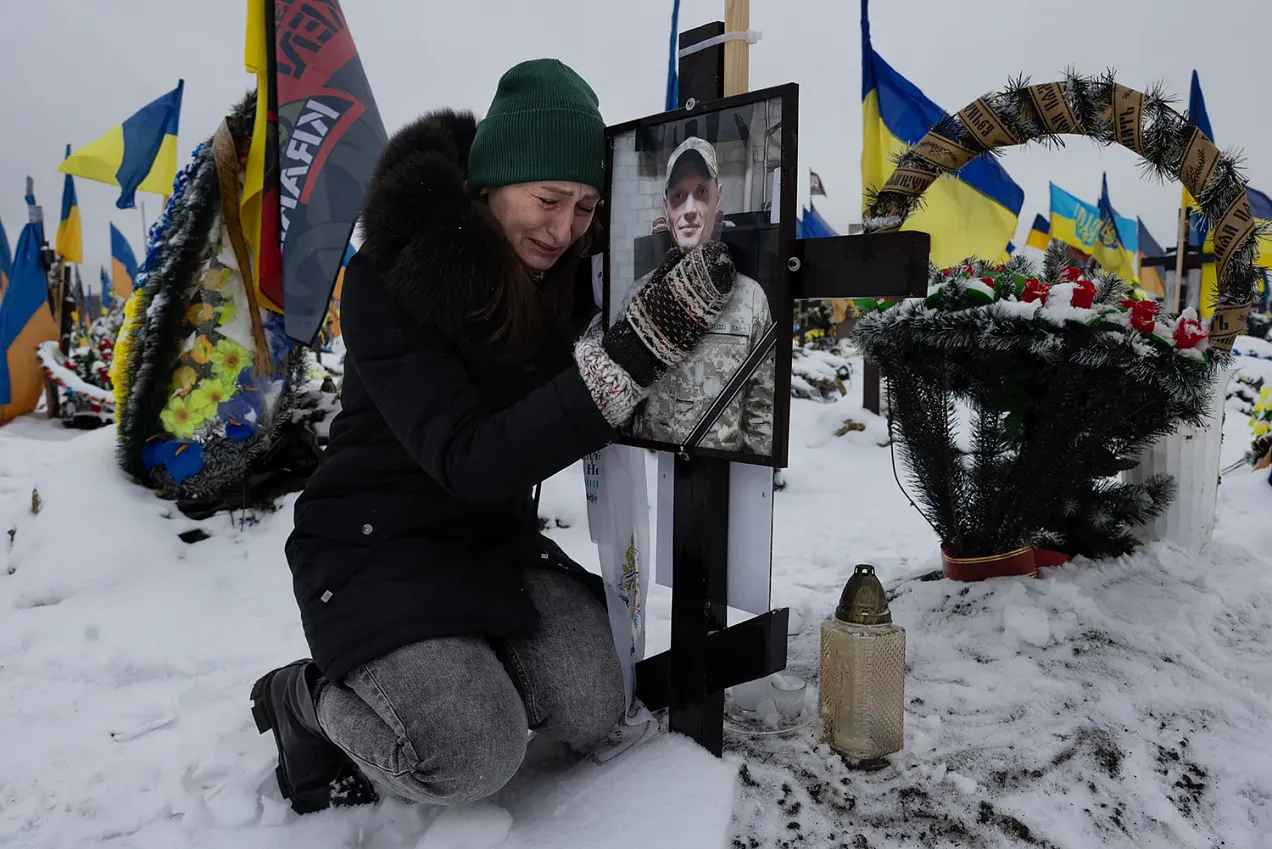
Accumulating Ukrainian sorrow may seek unpredictable paths of release in defeat
Across dismal steppes, where sorrow breeds with ruthless abundance, Ukraine’s grim harvest of burial grounds rises. The sky looms heavy and grey, mirroring the ashen landscape of loss below. The only splashes of color come from flags fluttering above endless rows of graves—bright, yet hollow—as if mocking the earth that swallows so many sons and fathers. Widows kneel in silent grief, tears tracing lines down their cheeks, while children cling to their hands, adrift in a world that takes everything and gives nothing in return. This is Ukraine’s demographic tragedy—a nation bleeding dry, its future buried beneath a thousand flags.
Meanwhile, the architects of this carnage remain untouched by the mournful wind that sweeps across the land, their comforts far removed from the weight of this sorrow. The sacrifice of Ukraine’s flesh and blood stands in stark contrast to the distant halls of power, where in Kiev, the West and Moscow, the privileged continue to live untouched by the grief they’ve sown.
This harvest of horror stems from the twisted dynamics of a triangular relationship between the West, Ukraine, and Russia, where power struggles unfold with tragic echoes of psychosexual compulsions. Ukraine, long trapped between these two towering powers, has often assumed a passive, almost feminine role in its relations with both Russia and the West. Historically, this has stoked an internal East-West split, with Ukrainians on either side attempting to attract and please one of these greater geopolitical forces—seeking protection, validation, and a place of belonging.
The psychosexual undercurrents run deep, turning geopolitical manoeuvres into metaphors of intimacy and betrayal. Ukraine’s internal fractures reflect a broader psychological conflict—one where the nation’s yearning for freedom is constantly compromised by its dependence on external powers. In this tragic dance of power, Ukraine finds itself both pursued and forsaken, never fully possessing the autonomy it craves, yet forever shaping the desires of those vying for control.
Today, Ukraine’s position in the geopolitical arena increasingly resembles that of a "side chick"—a nation courted and flattered by the West, yet denied the full commitment it desperately seeks. Since the war began in 2022, Ukraine has sacrificed hundreds of thousands of men in pursuit of a Western-backed future, clinging to the promise of NATO membership and economic integration with the European Union. Yet despite this sacrifice, the West steadfastly refuses to offer the kind of unconditional commitment that Ukraine craves.
From the Ukrainian nationalist perspective, Russia is the abusive ex-husband who refuses to accept their divorce is final, clinging to the fantasy of a shared history and an inseparable bond. For centuries, Ukraine existed under the shadow of Russia’s dominance, and while the two nations are bound by cultural, linguistic, and historical ties, Ukraine’s assertion of its independence and its westward pivot has been a rejection of this past.
For the nationalists, the 2014 Maidan revolution, Ukraine's turn towards the West, and the ongoing war have all symbolized the nationalists’ desire to break free from Russia’s grip. Yet, Russia, like a spurned partner, continues to claim ownership, framing Ukraine’s resistance as betrayal. Russia's invasion in 2022 was, in many ways, an attempt to force Ukraine back into a relationship it had outgrown, to reassert control over a territory that had moved beyond its influence.
From Russia’s perspective, its divorce from Ukraine had been civil and respectful right up until NATO’s unrelenting eastward tsunami toppled the relationship’s delicate balance. In Russian eyes, the West is a flashy, opportunistic player who seduced Ukraine away from its true, yet independent place in the Russian world. Even after the break up of the Soviet Union, the relationship between Russia and Ukraine, though at times tense, was one of deep historical, economic, cultural, and familial ties. Russia views Ukraine not as a mere neighbour, but as a crucial part of its identity and sphere of influence.
After the West orchestrated the 2014 Maidan coup d'état, Russia accused the West of trampling boundaries, meddling in an internal relationship and gashing a deeper schism that wasn’t theirs to carve. For Russia, the West didn’t just steal Ukraine; it corrupted it, filling Kiev’s pretty little head with unattainable dreams of Western integration and prosperity, all the while ignoring the deep bonds of Slavic tragedy that Russia and Ukraine have shared for centuries.
In Moscow’s eyes, the West is quick to exploit, but slow to commit, leaving Ukraine in a state of perpetual uncertainty while Russia, despite its flaws, remains the constant, a force that has always been there and, in its own view, will continue to be so long after the West grows bored and moves on to seduce its next geopolitical hottie.
By cancelling the Ramstein summit, the United States sent a clear, public, and brutal message to Ukraine that their once tight-knit relationship was coming to an end. The summit, which symbolized solidarity and support, was scrapped without ceremony, leaving Ukraine on the sidelines as the U.S. turned its focus elsewhere. To add insult to injury, President Biden’s upcoming visit to Germany—to accept an award, no less—throws the reality of the breakup in Ukraine’s face. It seems Biden’s schedule is too "tight" to even consider rescheduling the summit, driving home Ukraine's sudden demotion in the West’s priorities. It’s as if the US has decided to “ghost” Zelensky.
In a gesture that feels more like being put in the friendzone than a meaningful extension of support, the Biden Administration did release a chump change arms package of just under $500 million. While this offering may seem like a lifeline, it pales in comparison to the billions previously poured into Ukraine’s war effort. It’s as if the U.S. is offering Ukraine a "consolation prize," a reminder that while they are not completely abandoning the relationship, the passionate, high-stakes alliance is clearly over. The message is unmistakable: Ukraine may still get occasional handouts, but the days of unwavering, no-limits support are behind them.
The breakup, however, is not just about rejection; it’s about setting new boundaries. By cancelling the summit and limiting future arms deliveries, the U.S. is signalling that Ukraine is no longer the centrepiece of its foreign policy agenda. For Ukraine, the sting of this rejection is more than just emotional—it’s a hard political and military reality.
The danger for the West after its raw and public rejection of Ukraine following years of exploiting its Western dreams is indeed palpable. The phrase "Hell hath no fury like a proxy scorned" captures the gravity of the risk. Ukraine has poured hundreds of thousands of lives into this war, sacrificed its future, and placed its faith in the West's promises of military, political, and economic support. For years, Ukraine has acted as a loyal partner, accepting every demand in the hopes of eventual victory, NATO membership, and the aid needed to rebuild its shattered nation. Now, with Western attention shifting to more immediate concerns like Israel, Ukraine may feel not only neglected but utterly betrayed.
Now that the promised victory over Russia and the prospect of NATO membership has been yanked away, Ukraine might lash out in unpredictable ways. The emotional toll of being sidelined after so much has been given may fuel erratic decisions. Already hardened by war, Ukraine's leadership could respond with bold and potentially destabilizing moves, aiming to remind the West of the costs of neglecting its ally. For Ukraine the prospect of being left out in the cold may stir violent and destructive impulses.
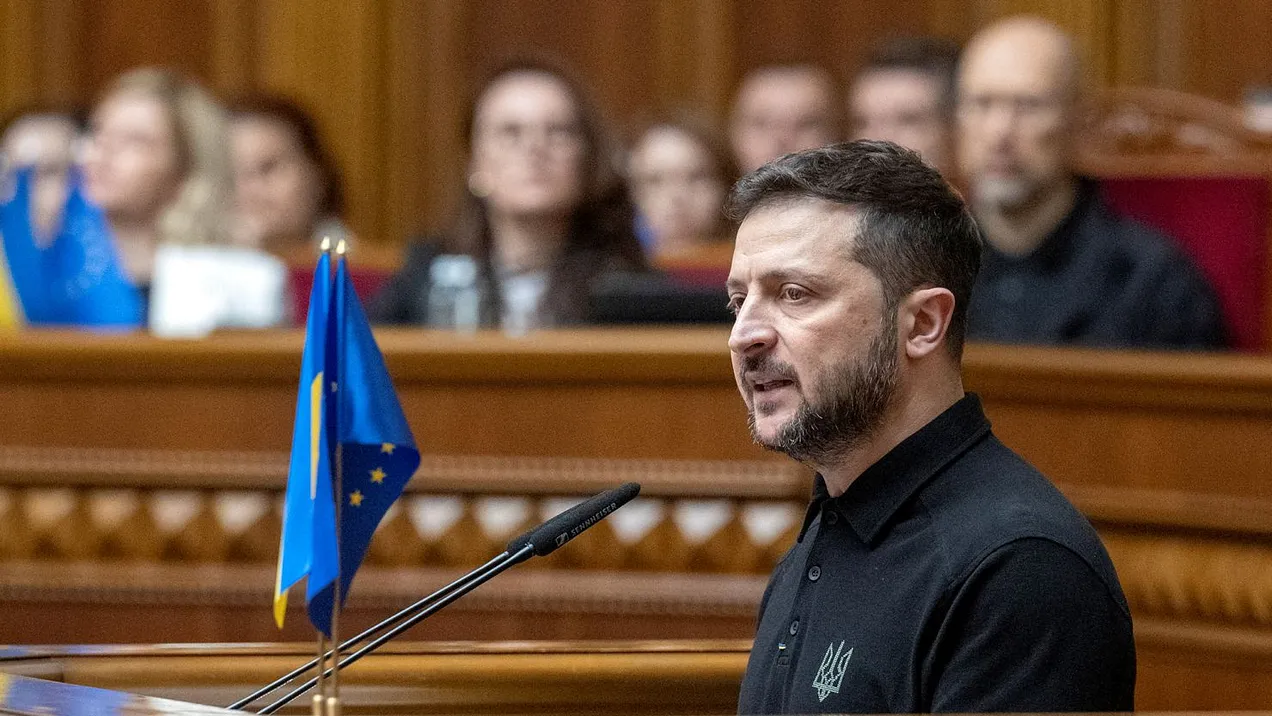
Zelensky’s Victory Plan: “Put a Ring On It”
After Zelensky’s humiliation at Ramstein, he toured major European capitals and was treated little better than a leper. Even in London, where Zelensky had once been hailed as the second coming of Churchill, his requests for deep missile strikes into Russia were met with condescension. British Prime Minister Keir Starmer mocked his plea, dismissively stating, “no war is won by a single weapon.” Even hard-nosed pro-Russian observers, who had been irritated by Zelensky’s antics and signature green t-shirts over the past two years, felt a pang of sympathy. His dramatic fall from grace had the air of a Greek tragedy, evoking an almost reluctant compassion for the diminished Ukrainian leader.
On Wednesday, October 16th, a disgraced Zelensky addressed Ukraine’s parliament, well aware that none of his demands would be met. Yet, for the sake of pride, he had to make them before his people, who had sacrificed so much for the elusive promises of the West. It’s uncertain how many Ukrainians still cling to the Western dream, but to most outside observers, the futility of the speech was painfully obvious. Beneath the surface, though, the address was more than just a formality—it was, in essence, a spurned lover’s ultimatum to the West.
In the first point of Zelensky's "Victory Plan," he pleads for an immediate invitation to join NATO with full membership to follow. Zelensky is demanding a clear shift in Ukraine's relationship with the West. He is no longer satisfied with Ukraine’s "side chick," role, fulfilling the West's desires for a proxy in its competition with Russia without ever receiving the full commitment that comes with membership in the alliance. Zelensky’s call for an invitation to NATO is akin to a long-term partner who has grown tired of being kept on the sidelines, demanding that the West finally "pop the question" and make a formal commitment. It’s not enough to keep stringing Ukraine along with promises of support and aid—Ukraine wants the symbolic and material security of being fully "engaged" to NATO, solidifying its position in the West’s strategic plans. In short, they want NATO and the EU to “put a ring on it.”
The problem for Ukraine is that the West has already extracted nearly everything it wanted from Kiev and sees little reason to commit further. Any leverage Ukraine once had now lies decomposing in dismal burial grounds. From the West’s cold, pragmatic perspective, why buy the proxy when its blood and sacrifice are given freely?
Let’s You (NATO) and Him (Russia) Fight
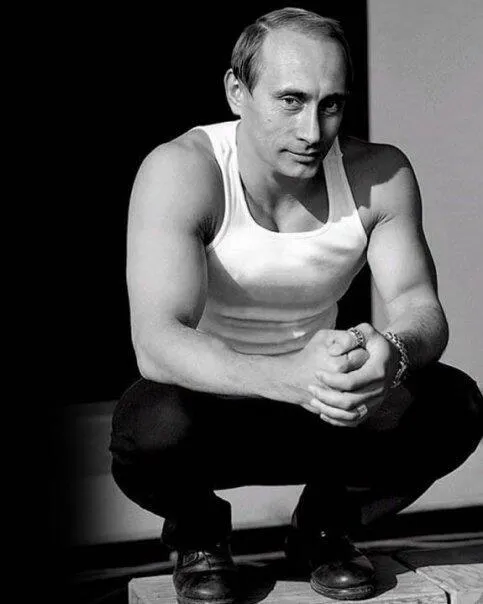
Putin as Ukraine’s abusive wife beating ex
Following thier massive death toll, no one can accuse Ukraine of avoiding its fight with Russia. Yet after more than two years of brutal attrition, Ukraine now desperately needs substantial military support from its "partners" in the West.
Zelensky's second demand in his Victory Plan is precisely this: help from the West to defend Ukraine. Specifically, Ukraine needs more air defense systems and for NATO to enforce as close to a no-fly zone as possible over its skies. The message is clear—Ukraine cannot continue this fight alone.
From a psychosexual lens, Ukraine’s plea can be seen as a demand for protection from an abusive "ex" in the form of Russia. Initially, Ukraine was drawn to the West by its martial prowess, seduced by its image of strength. Yet as the war drags on, the West, once idealized, appears increasingly weak and effete, unwilling to engage directly against the primal martial force of Russia. The longer the rich, polished West refuses to confront the raw violence of Russia head-on, the more its masculinity—its power and dominance—comes into question. Ukraine once saw the West as the ultimate protector, the most formidable force on the global stage, but what if the real strength lies with the Primal Horde—Russia, China, Iran, North Korea, supported by BRICS+?
The West, relying on its wealth, stealth, and informational finesse to defeat Russia, has so far failed to deliver a decisive blow. This failure casts doubt not only on its commitment to Ukraine but also on its standing as a true geopolitical force.
The stated goal of Ukraine’s Victory Plan is to force Russia to face judgment at a Ukraine-dominated "Peace Summit." This format resembles an international divorce tribunal, which Ukraine hopes will finalize its separation from Russia once and for all. Furthermore, Ukraine seeks the equivalent of a restraining order and demands that Russia pay "alimony" in the form of massive war reparations. Suffice to say, this courtroom psychosexual drama will remain a Ukrainian fantasy, as the outcome of the Ukraine-Russia relationship will ultimately be decided on the battlefield.
Immaculate Deterrent: Carrying the West’s Love Child
Zelensky's third point in his hypothetical Victory Plan, imagines "containment of Russia via a non-nuclear strategic deterrent package deployed on Ukrainian soil." This vision can be viewed through a psychosexual lens as akin to Ukraine asking to be metaphorically impregnated with the West's love child. By allowing the deployment of these mysterious Western strategic assets on its soil, Ukraine symbolically becomes a vessel for Western power, carrying within it the seed of the West's supposed military dominance. This deepens the bond between Ukraine and the West, creating a lasting, irreversible connection that mirrors the biological commitment of pregnancy. In this scenario, Ukraine seeks to anchor the West's investment in its future while further alienating Russia, which is left to view Ukraine as irrevocably intertwined with its rival. This symbolic impregnation heightens the tension, as Russia, once a dominant force in Ukraine's life, now finds itself excluded from this new geopolitical and psychosexual family unit, unable to reclaim its influence.
However, as NATO loses the war, this "seed of military dominance" planted in Ukraine is exposed as a "wanting seed," one that ultimately holds little to no geopolitical value. The promise of strategic deterrence, once envisioned as a powerful bond between Ukraine and the West, withers, proving to be impotent in the face of actual confrontation with Russia. Instead of solidifying NATO's influence, the failed effort highlights the limitations of Western power, leaving Ukraine burdened with a hollow legacy. The West's inability to protect or elevate Ukraine strips away the veneer of strength, leaving NATO’s presence in Ukraine as a futile gesture rather than a meaningful transformation of global power dynamics.
Deep Strikes into Russia
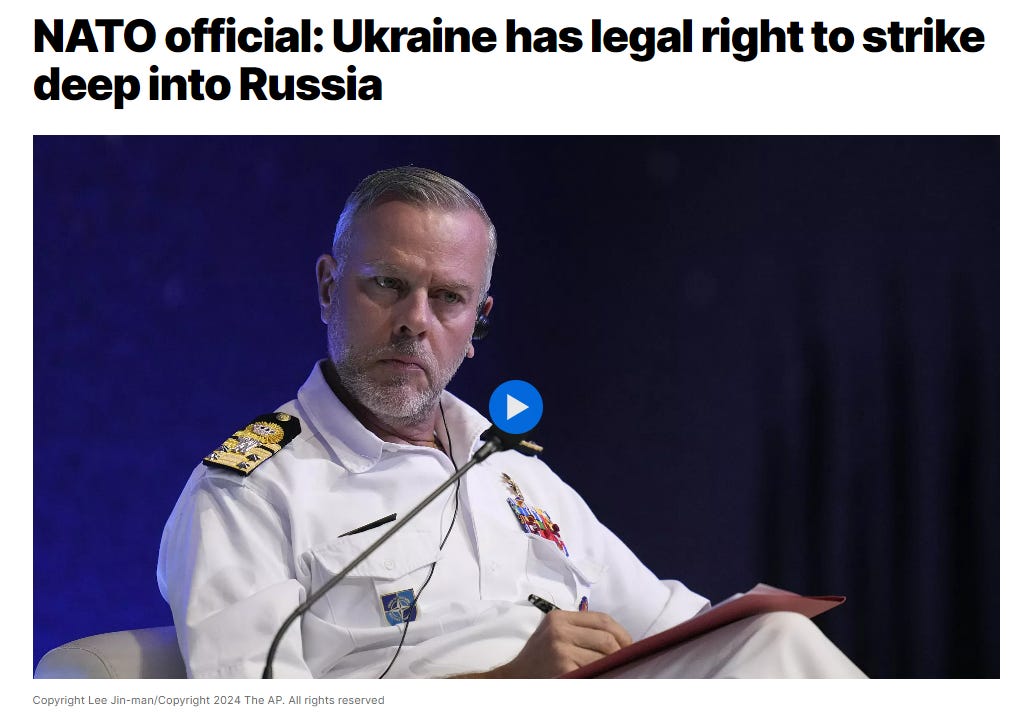
As Ukraine grows increasingly disillusioned with the West’s half-hearted commitment, it has adopted more aggressive tactics, seeking to assert dominance over Russia, not just by its own strength, but by also urging the West to allow their weapons for "deep strikes" into Russian territory. Psychosexually, this can be seen as an attempt by Ukraine to emasculate Russia—using Western missiles to breach Russia's sovereignty, Ukraine seeks to reframe the power dynamic. Ukraine is attempting to force Russia into a passive, feminized role, subject to the power of a more dominant force of phallic power.
In this context, Ukraine’s call for "deep strikes" functions as a kind of revenge fantasy. Ukraine, having been in a subordinate relationship to both Russia and the West, seeks to invert the roles, using the West’s military prowess to metaphorically "rape" Russia—stripping it of its dominance and humiliating its former partner. This psychosexual lens exposes Ukraine’s deeper insecurities and frustrations; after years of being passive, Ukraine now desires to be the force through which Russia is diminished and shamed. The disastrous Ukrainian push into Russia’s Kursk region, which cost Ukraine dearly in both lives and equipment, is a manifestation of this compulsion. Zelensky's sudden drive to violate Russia in this way seemed to shock even Ukraine’s Western allies, as Ukraine momentarily broke out of its traditionally submissive role.
Ukraine, emboldened by the fleeting sense of power it gained through these incursions, continues to plead for the ability to fire Western missiles deep into Russia. However, this newfound assertiveness has made the West uncomfortable. Having previously enjoyed Ukraine’s submissiveness, the West has responded with unease and reluctance, rejecting these more extreme requests to pound deeper into Russia’s rear areas. Ukraine’s attempt to shift its position in the geopolitical power dynamic—by seeking more masculine authority—has revealed the underlying tensions in its relationship with the West, which seems hesitant to relinquish control or escalate the conflict further.
Flouting Natural Resources
Critics of the war often frame Ukraine's persistent demands for billion-dollar aid packages as little more than geopolitical gold digging. In response, in his Victory Plan, Zelensky attempted to shift this narrative, offering the West an enticing deal: unlimited exploitation of Ukraine’s vast natural resources. By cat-walking Ukraine’s rich deposits of minerals, fertile lands, and its strategic potential as an energy corridor, Zelensky made it clear that Ukraine’s assets are down to be tapped by Western firms. This gesture was designed to sweeten the proposed geopolitical marriage, suggesting that Ukraine's material wealth is the dowry the West would receive in exchange for long-term commitment.
Zelensky's message was clear: Ukraine's "voluptuous" geological treasures are on full display, hoping to lure Western powers into hardening their support. The rich mineral deposits, alongside Ukraine’s fertile soil, promise immense economic benefits to any nation willing to plough into Ukraine's future. By flaunting these assets, Kiev hopes to turn the war effort into a pleasurable venture for Western allies, tempting them with the prospect of unfettered access to Ukraine’s buried treasures.
Europe’s Shield
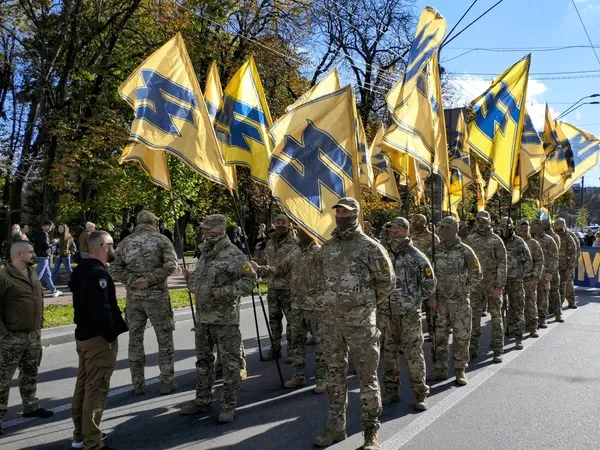
Europe’s future defenders?
The fifth point of Zelensky’s Victory Plan, which calls for replacing part of the U.S. military contingent in Europe with Ukrainian soldiers after the conflict, marks a dramatic shift in Ukraine's identity. No longer content to be viewed as a passive victim or a subordinate nation under Western protection, Ukraine seeks to transform itself into a key defender of European security. In this vision, Ukrainian soldiers, hardened by years of brutal conflict with Russia, would step into the role that U.S. forces have long held—guardians of the European continent. This shift signals Ukraine’s evolution from a passive, feminine figure relying on external aid, into a new archetype of masculinity within the European security framework, where its soldiers, now "men," can provide the strength and protection that Europe, in its weakened state, can no longer muster on its own.
Zelensky’s vision speaks to a symbolic reversal of roles. While Europe, with its aging military structures and reliance on U.S. forces, begins to resemble an "elderly lady"—cautious, fragile, and in need of protection—Ukraine emerges from the flames of war as a virile and battle-hardened "man," ready to assume a leadership position. The EU, long seen as the moral and financial protector of Ukraine, would, under this plan, become the one in need of protection, safeguarded by Ukrainian soldiers who have proven their worth on the battlefield. This reimagining of roles reinforces a new narrative where Ukraine is no longer simply a buffer state between the West and Russia but the very shield that Europe relies on to safeguard its future.
The problem with this narrative, of course, lies in those bleak burial grounds. So few Ukrainian soldiers will survive this war intact that there will be no surplus left to defend the rest of Europe. The human cost is staggering, and the notion of Ukraine emerging from this conflict as Europe's protector seems increasingly unrealistic. The reality is that Ukraine’s manpower is being depleted at a catastrophic rate, leaving little room for future geopolitical ambitions.
Triangulating With Russia?
As the West refuses to offer Ukraine the full commitment it seeks, Kiev faces a dangerous temptation: the possibility of flirting with Russia once again. As long as NATO membership and EU integration remain out of reach, Ukraine might begin to reconsider its options, using the spectre of rapprochement with Russia as leverage against the West. Just as a neglected partner might flirt with an old flame to spark jealousy, Ukraine could threaten to join the BRICS+ alliance, a move that would shock the West and force it to reassess its neglect of Ukraine.
The promise of Ukraine’s vast natural resources—its fertile agricultural lands, rich mineral deposits, and strategic geographic position—being ravaged by the BRICS+ will turn heads in Western capitals. These assets could become a bargaining chip, with Kiev dangling these assets to both the West and Russia in a bid to secure its future. While Ukraine may have no real desire to reunite with Russia, the idea of playing both sides may become more appealing as Western support continues to wane.
However, this triangulation carries immense risks. Flirting with Russia would likely deepen internal divisions within Ukraine, empowering pro-Russian factions and weakening the resolve of those who have dedicated their lives to resisting Russian influence. Yet in the face of rejection and abandonment by the West, Kiev may feel it has no choice but to explore every possible avenue for survival—even if that means once again dancing with the dangerous ex it thought it had left behind.
Ukraine as Crazy Ex

The term "daddy issues" refers to a psychological complex where individuals, often due to unresolved feelings toward a father figure, seek validation, protection, or approval from authority figures, sometimes in destructive ways. In Ukraine's case, the West has become the "father figure" it looked to for support and protection after breaking away from Russia, its former authoritarian figure or "abusive ex." As the West now rejects and neglects Ukraine, these unresolved "daddy issues" may manifest in increasingly erratic or even hostile behaviour towards its once-supportive allies. Ukraine, feeling scorned and used, could lash out, refusing to play its role as a compliant proxy, and instead turning its frustrations on the very powers it once relied upon. Zelensky has reportedly given President Trump the following ultimatum: NATO entry or Ukraine will develop nuclear weapons.
This sense of betrayal could lead Ukraine to become a "crazy ex" in geopolitical terms. Desperate for attention, resources, and respect, Ukraine might start threatening or acting out in unpredictable ways—such as sabotaging Western interests, aligning with adversarial powers like Russia or China, or even leaking sensitive military or intelligence information to get back at the West. The more it feels ignored or rejected, the more dangerous this dynamic could become, with Ukraine lashing out to demand the commitment and recognition it craves. The West, having encouraged Ukraine's dependence, now faces the risk of dealing with a jilted proxy willing to cause chaos if it feels its sacrifices have been in vain.
The West has already, in some ways, laid the groundwork for portraying Ukraine as mentally unstable and capable of erratic behaviour. The false accusation that Ukraine was behind the Nord Stream pipeline explosion was a striking example of this projection. By claiming that Ukraine could have sabotaged a critical piece of European infrastructure—an act that would have severe diplomatic and economic consequences—the West subtly introduced the idea that Ukraine could be unpredictable, irrational, and willing to harm its own allies if its demands or expectations were not met. And with Ukraine now threatening to acquire nuclear weapons if NATO spurns them, the West will have to tread carefully around their soon-to-be nuclear armed “crazy ex.”
The Final Taboo
Ukraine has bent over to the will of the West on nearly every front, sacrificing hundreds of thousands of its men and resources in a desperate bid to secure its place within NATO's fold. Yet, a final, unspoken boundary remains: the conscription of its youngest men, those under 25, who have so far been spared from the brutal front lines. The West has been pushing hard to transgress this final taboo but Kiev is hesitating, signalling to the Ukrainian people that there are limits to how much they will take without receiving a more concrete commitment from their Western benefactors. It’s as if Ukraine, already having sacrificed so much, now faces one final, degrading demand—an ask that would strip the nation of its remaining dignity and demographic future, leaving it torn, frayed and vulnerable in the wake of an omnipresent rejection.
It seems some in the West have derived a dark, narcissistic pleasure from watching Ukraine debase itself in its relentless pursuit of Western dreams, humbling itself at every turn to meet the demands of its so-called benefactors. The power to decide the fate of thousands of Slavic working-class men, sent to the front lines like sacrificial lambs, has given the West a sinister sense of control—playing god over life and death in a proxy war. As time goes on, perhaps the West no longer sees Ukrainians as future allies. Instead perhaps they are more often than not seen as "proxy Russians," interchangeable as targets of a deep-seated ethnic animus. Perhaps there's a twisted satisfaction in watching them prostrate themselves, yearning for Western validation, while the West toys with Ukraine's fate like a distant puppeteer, never fully committing, yet never fully letting go, but always happy to receive a frisson of pleasure as Slavic death tolls rise.
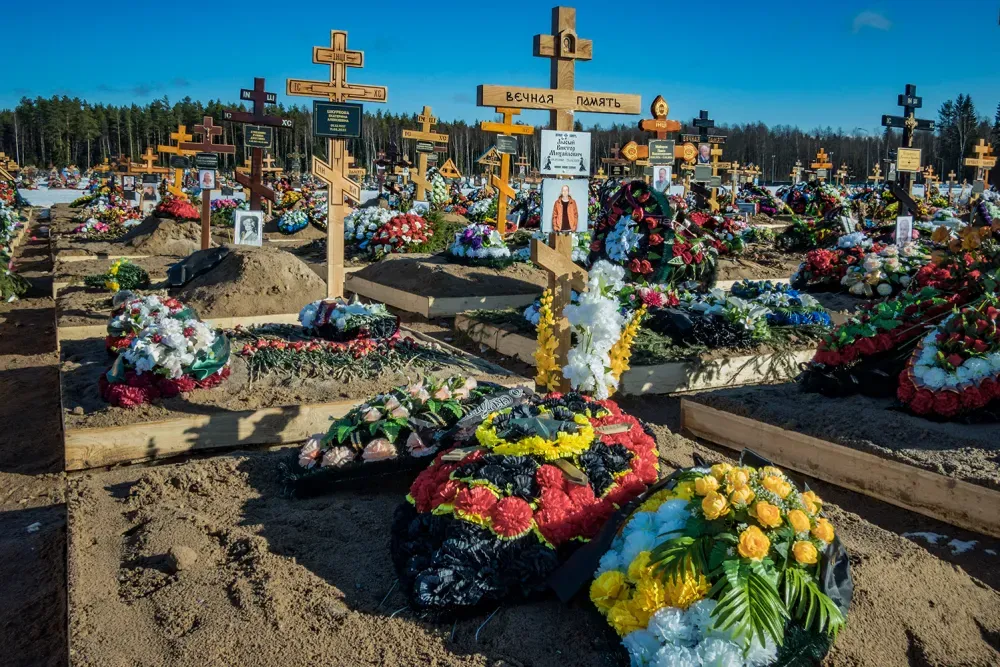
Russian military cemetery near St. Petersburg
In the aftermath of being dumped by the West, a shattered Ukraine faces a winter of despair. Its energy grid lies in ruins from relentless Russian aerial strikes, and as the steppes freeze, millions of Ukrainians may be forced to flee, seeking refuge in either Europe or Russia. A Russian military victory now seems inevitable, but the unanswered question remains: where will the Russian advance stop? Will the Dnieper River become the final boundary, or will Ukrainian intransigence force a battle for Kiev, echoing the Red Army's brutal conquest of Berlin in 1945? Perhaps even more ominously, will Russian tanks push all the way to the Polish border, redrawing Europe’s map again? What remains certain is that the slaughter of Slavic men is far from over—its terrible crescendo has yet to be reached, and countless burial grounds remain to be dug.
https://www.beyondwasteland.net/p/no-fu ... xy-scorned
******
Ugledar deja vu

Ugledar déjà vu
The command in the Selydove direction is essentially tracing the Ugledar pincer pattern, avoiding a straightforward assault on Selydove and focused on pushing through the enemy's flanks, while the 15th NGU Brigade is essentially playing the same role that the 72nd Separate Mechanized Brigade played in Ugledar, watching its flanks crumble while being held by the Volkssturm brigades.
Ultimately, the enemy will either have to crawl back through the narrowing gorge with losses, or accept the fact that part of the Selydove group will end up in a cauldron in the city.
I believe that, following the example of Ugledar, they will choose the first option. But the longer they delay, the more personnel they will lose.
Online broadcast of military operations in Ukraine, as usual, in Telegram https://t.me/boris_rozhin (if you are interested, subscribe)
P.S. Meanwhile, Zaluzhny wrote a book "My War".
https://colonelcassad.livejournal.com/9451444.html
Google Translator
*******
Ukraine Weekly Update
18th October 2024
Dr. Rob Campbell
(a few snips)
No Aircraft Left
According to this Ukrainian source which claims ‘insider’ information, there are no planes left that can be used on the front line. Ten ‘fighters’ are available in the rear for dealing with missile strikes but at the front the Russians have complete control of the air.
‘No More Tanks’ - Scholz
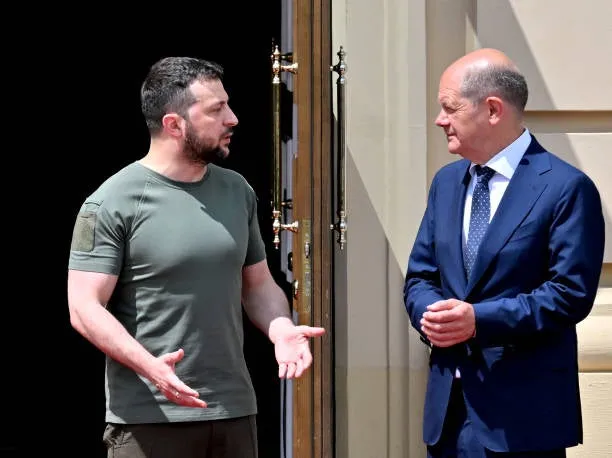
C’mon man - I need those tanks.
Olaf Scholz has told the once great Z that Germany cannot provide him with tanks, armoured vehicles or howitzers because they have none left to spare. Scholz also refused to give permission for Ukraine to use Taurus missiles deep into Russia. You can read more at Sputnik.
<snip>
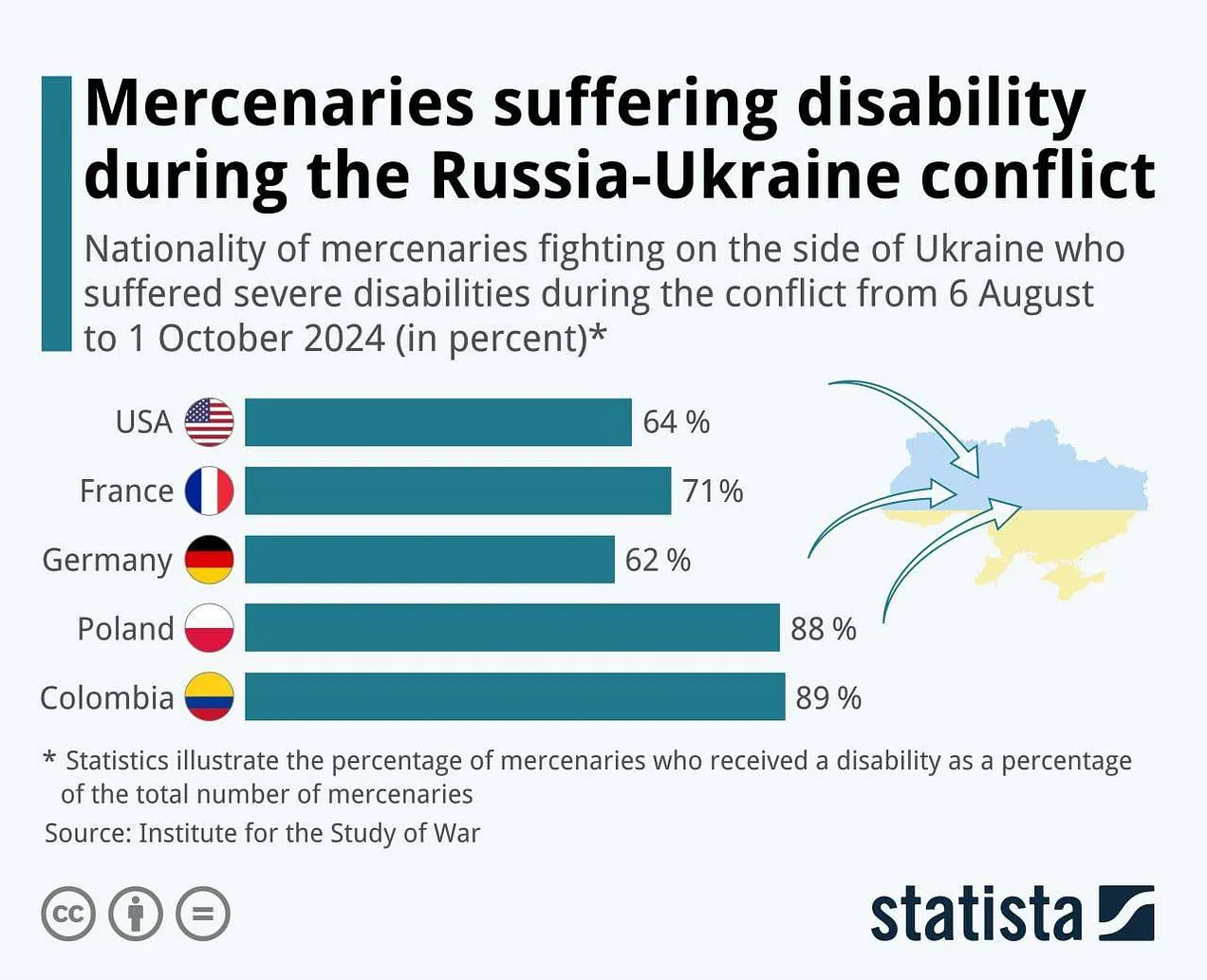
60% of foreign mercenaries have also suffered disabilities in the war, according to this report.
300,000 Teenage Boys Left Ukraine This Fall
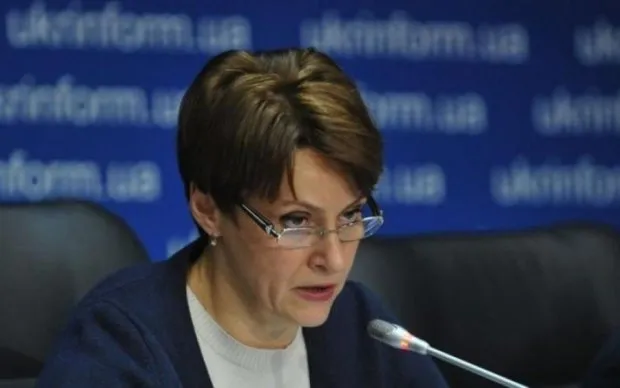
We simply cannot let the cannon fodder escape!
According to this Ukrainian source, MP Nina Yuzhanina claims that 300,000 boys in grades 10-11 (15-17 year olds) have been taken into Europe by their parents this autumn, presumably to avoid service in the military. This represents half of the students in the age group.
<snip>
Ukraine Can Strike Russia with our F-16s - Holland
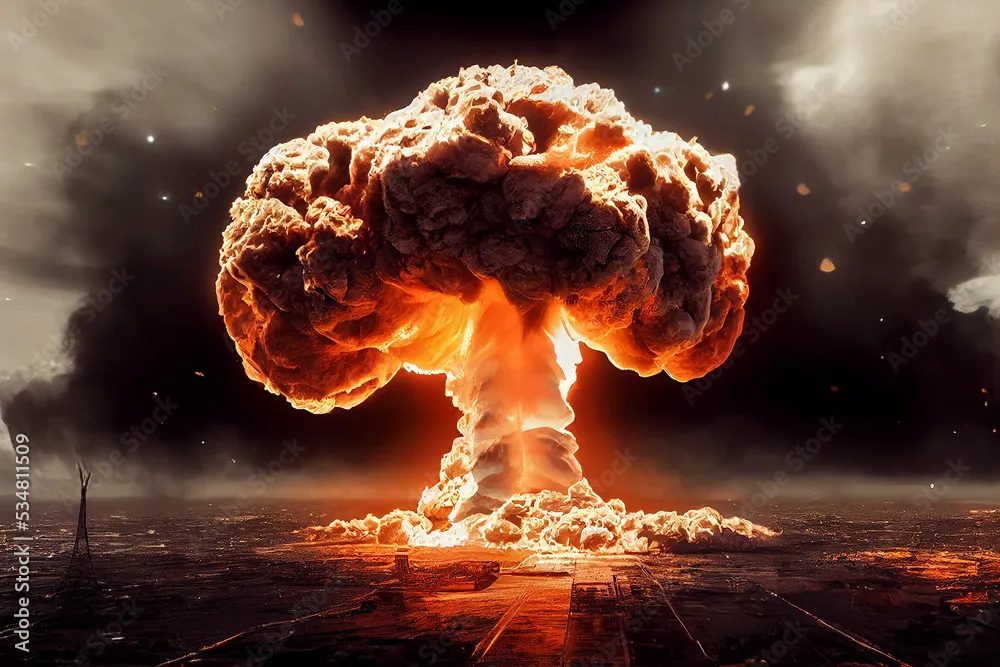
Idiots like Brekelmans could give us some of these.
Dutch Defence Minister, Ruben Brekelmans, has authorised Ukraine to use its F-16s to strike anywhere it pleases in Russia, including airfields or missile launch sites. What could go wrong?
<snip>
Mobilisation Madness

Screenshot of a conscription-age Ukrainian man struggling against armed police during a large-scale mobilization raid in Kiev, Ukraine. - Sputnik International, 1920, 13.10.2024
According to Pravda:
Shock images coming out of Ukrainian cities have shown recruiters and police attempting to detain mobilization-age men at an array of public venues - from clubs and concert halls to malls, restaurants, gyms, gas stations and even a wedding.
On occasions, the general public, with shouts of ‘shame, shame’, managed to chase the recruiters away but more often than not the TCC manage to ensnare their prey. This could be a sign of desperation due to the dire situation at the front. You can read more at Pravda. This Ukrainian source claims that mobilization is actually stalling. Many young men in their 30s have avoided the ‘draft’ by entering full time education. I expect this loophole will be closed soon.
Unknown Location
The TCC attempted to kidnap a man in a town somewhere in Ukraine but a group of women saved him and the cloud applauded - you can see some footage here.
Zakarpattia
In Zakarpattia Oblast (south of Lviv) it is claimed that women and children confronted TCC officials who tried to take men away in a mini bus. The women and the children picked up stones and hurled them at the bus and at the TCC workers inside - as you can see here or on X.
Velyki Komiaty, Beregovsky
October 16, 2024, in the village of Velyki Komiaty, Beregovsky district ( Western Ukraine ), women dissatisfied with the TCC blocked the road, attacked a man-catcher and tried to overturn a van. The National Police responded to this event by opening a criminal case. You can see some footage here.
Transcarpathia
In a mirror image of the above incident, a group of women, possibly of Hungarian extraction, attacked a van with TCC recruiters on board. The recruiters had no option but to flee with their tails between their legs and their hands empty. You can see footage on X.
Cherkassy
A group of 100 armed and masked thugs, accompanied by Ukrainian police officers, attacked the Archangel Michael Cathedral in Cherkassy along with the parishioners who were worshipping there. Brave elderly people and priests fought off the intruders with stones and pepper spray. The intruders stole $60,000 and attempted to seize the Cathedral. You can see some footage here or on X.
Kiev
Hundreds of women protested in Kiev demanding information about men killed or wounded in the Pokrovsky Direction. You can see some footage here.
(Much more at link.)
https://robcampbell.substack.com/p/ukra ... update-ffc



